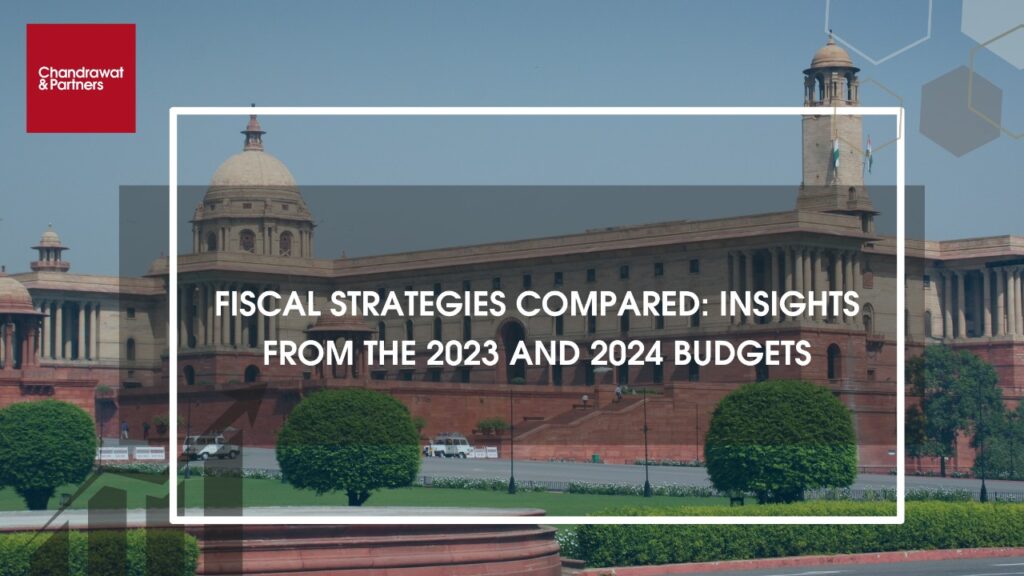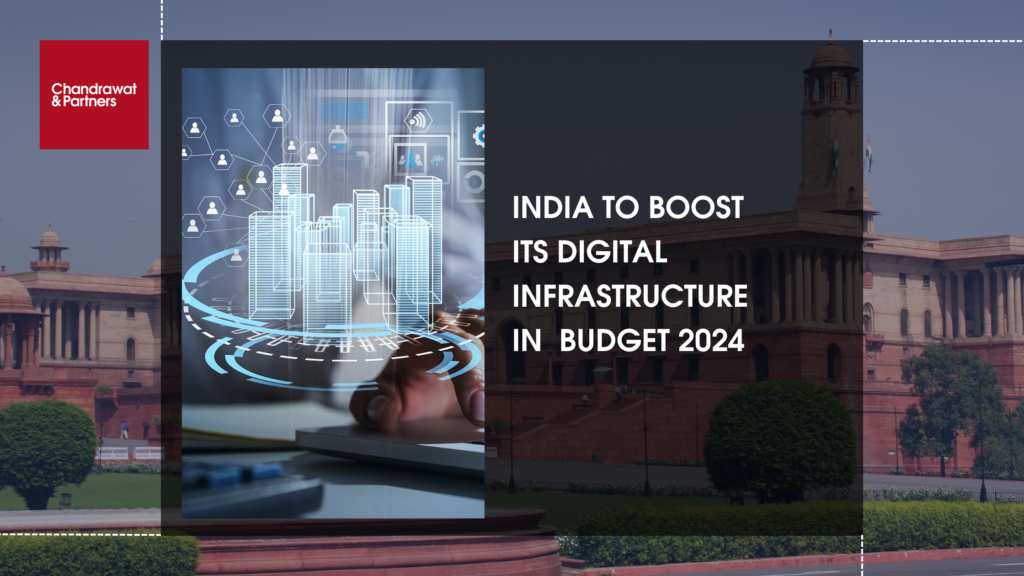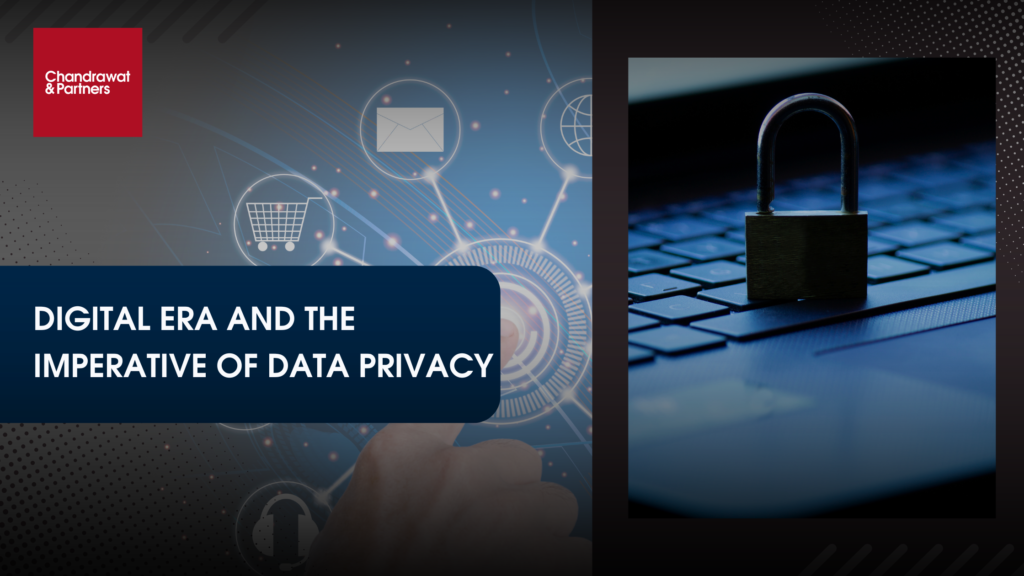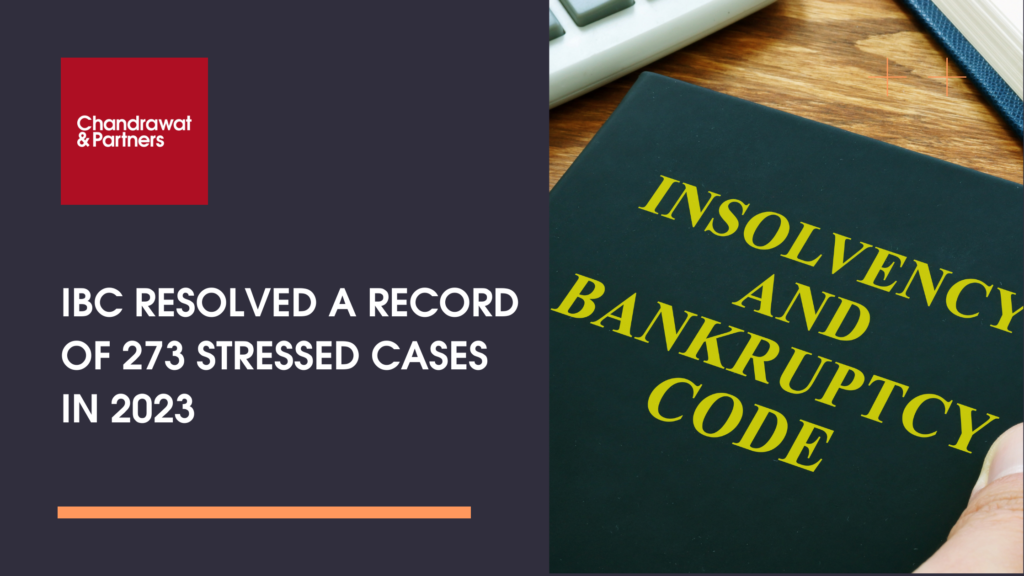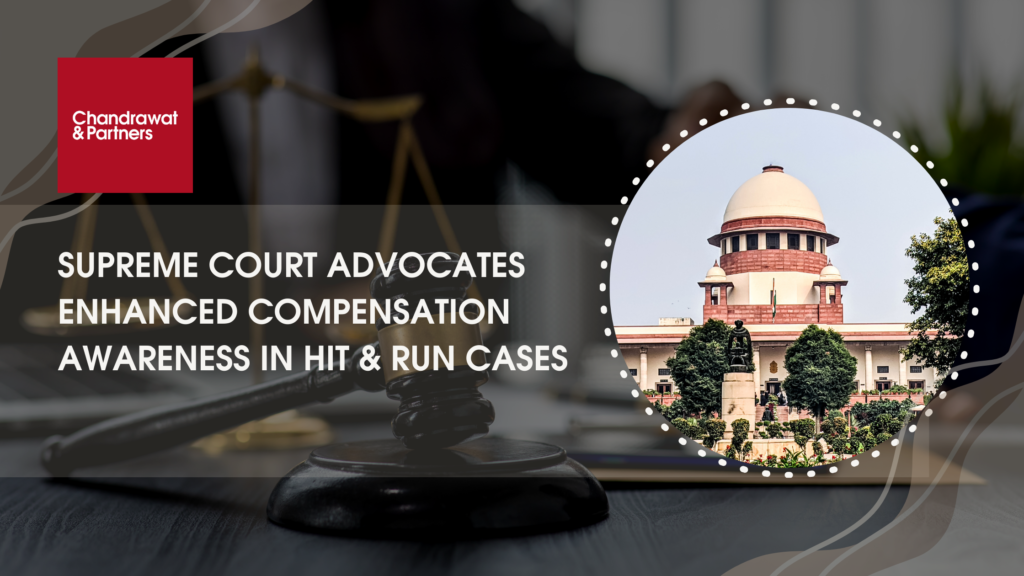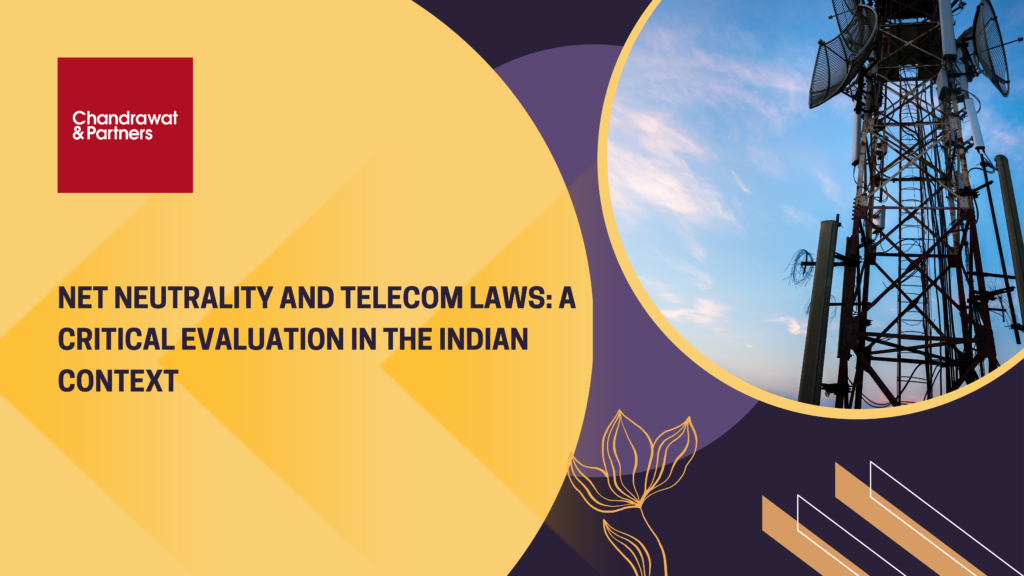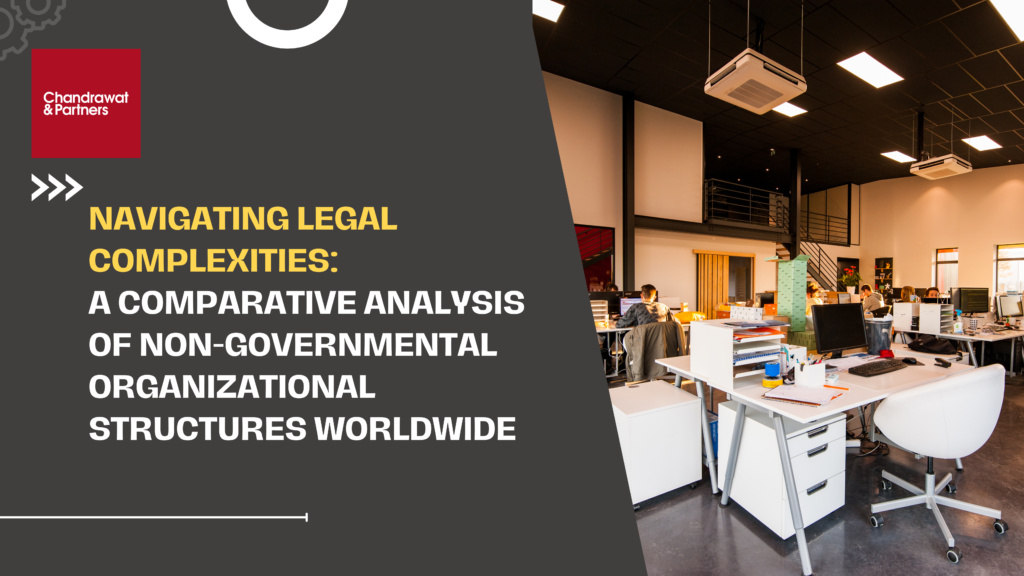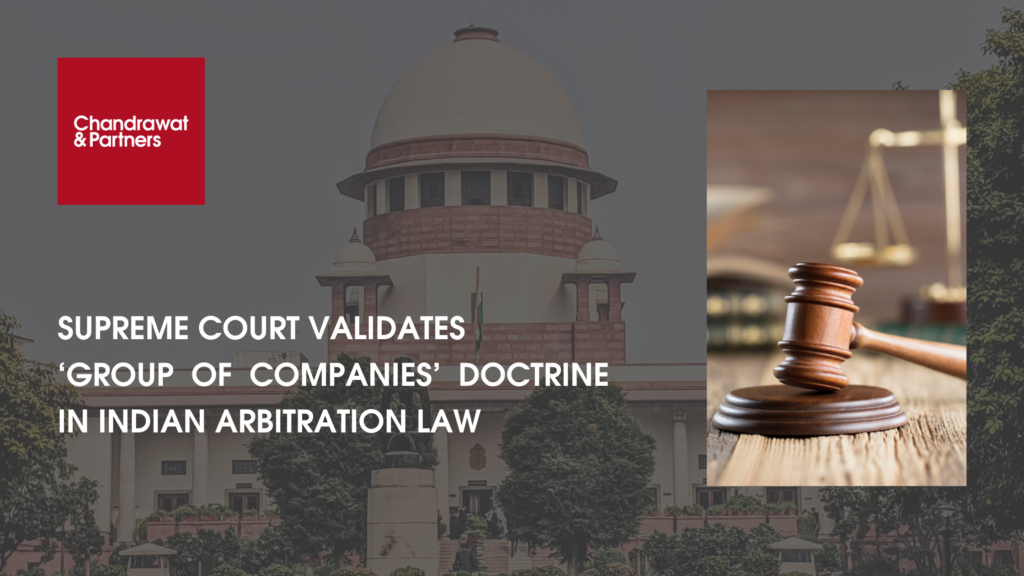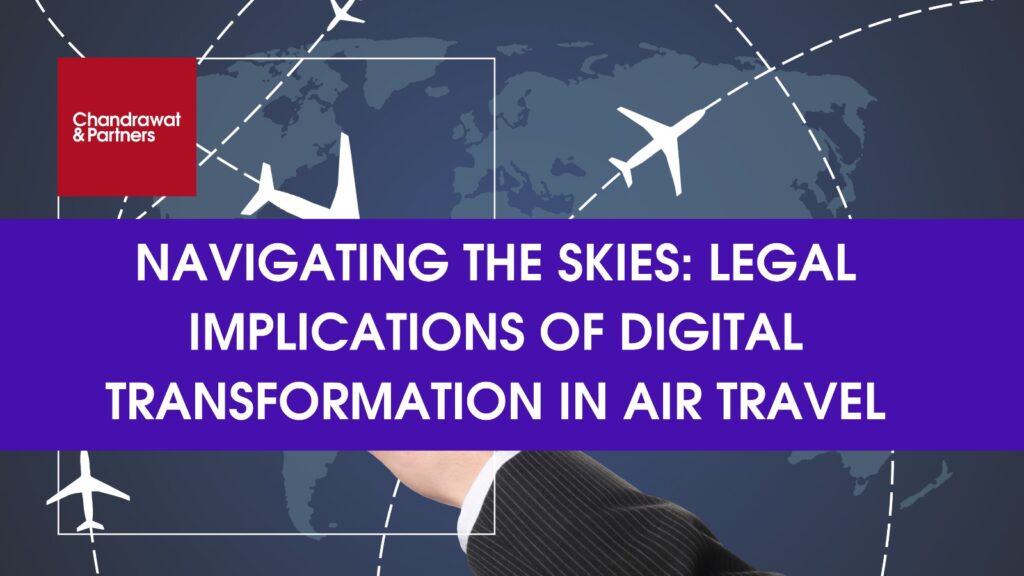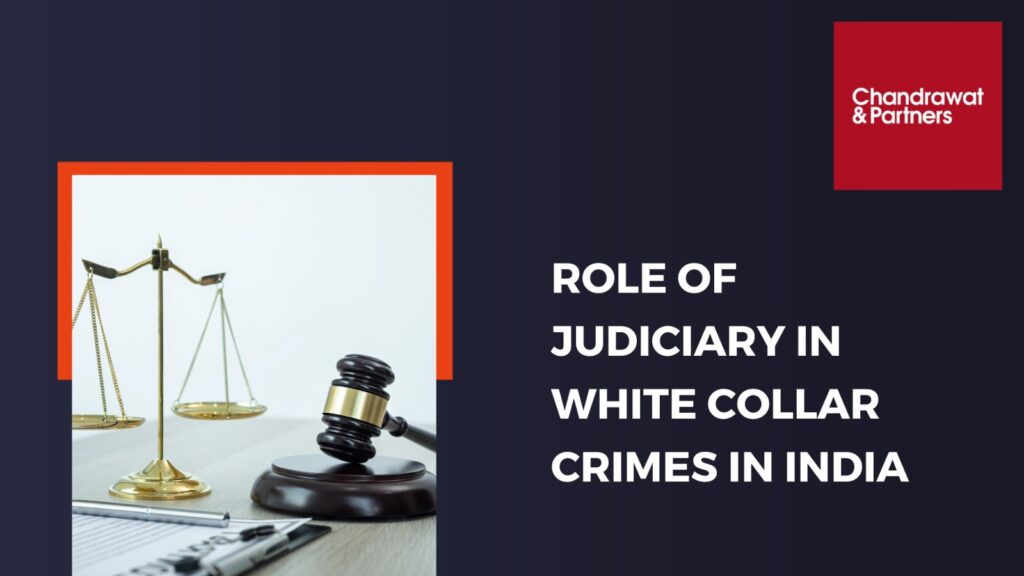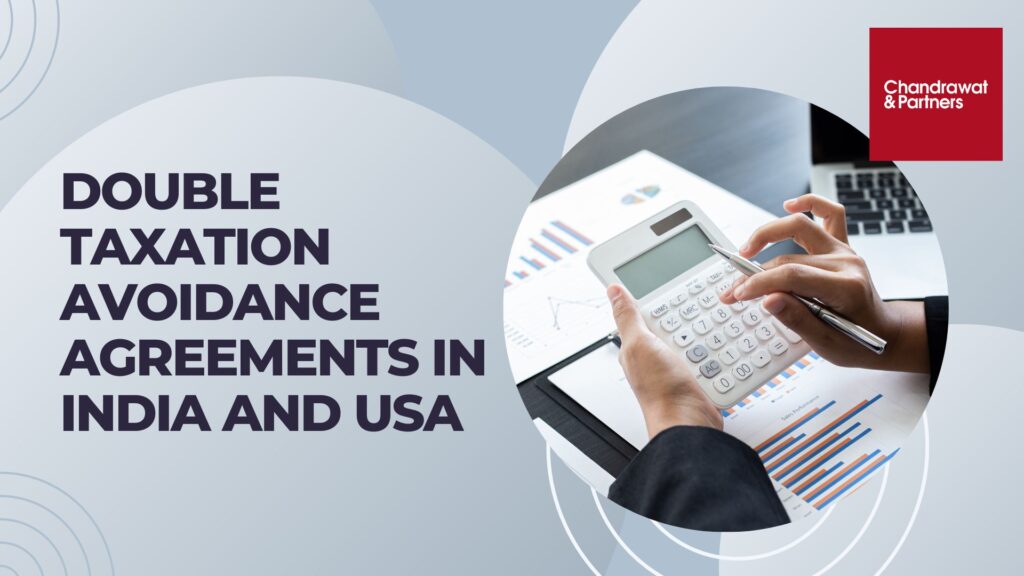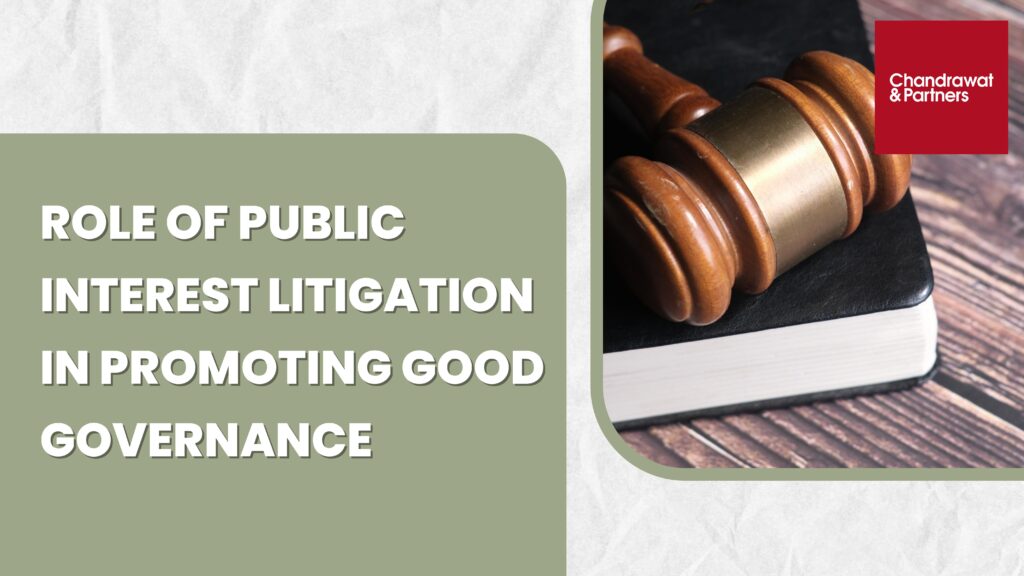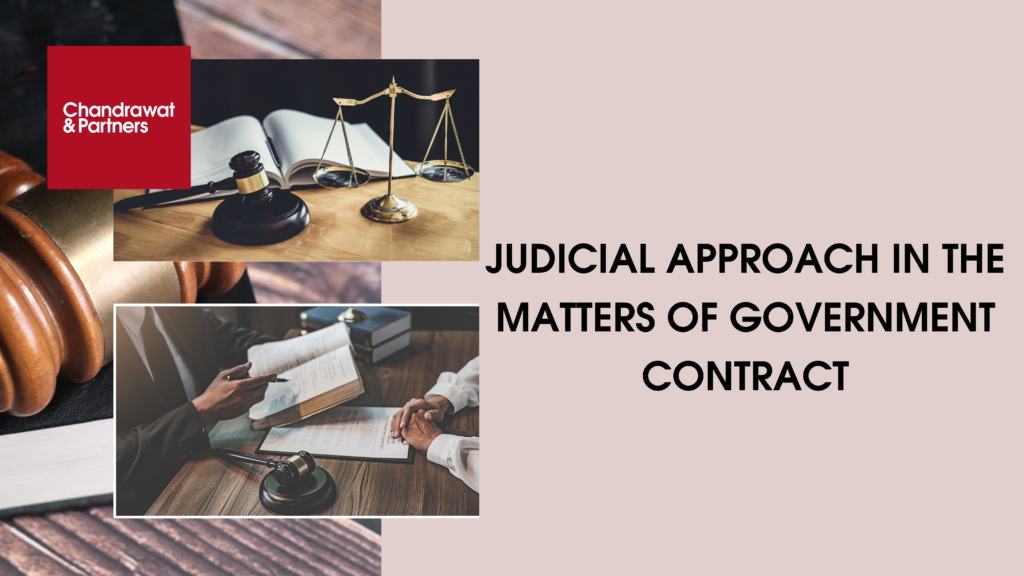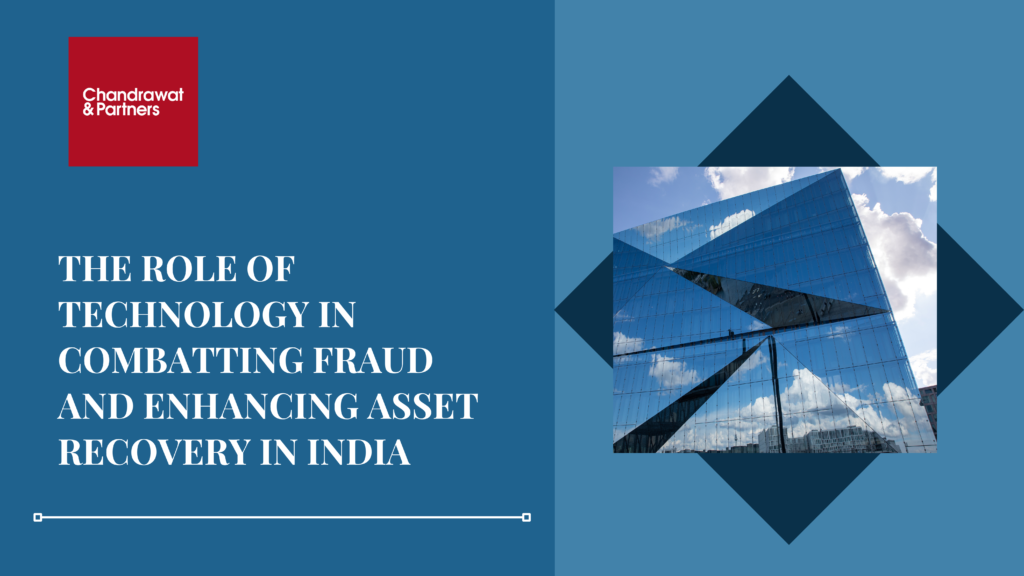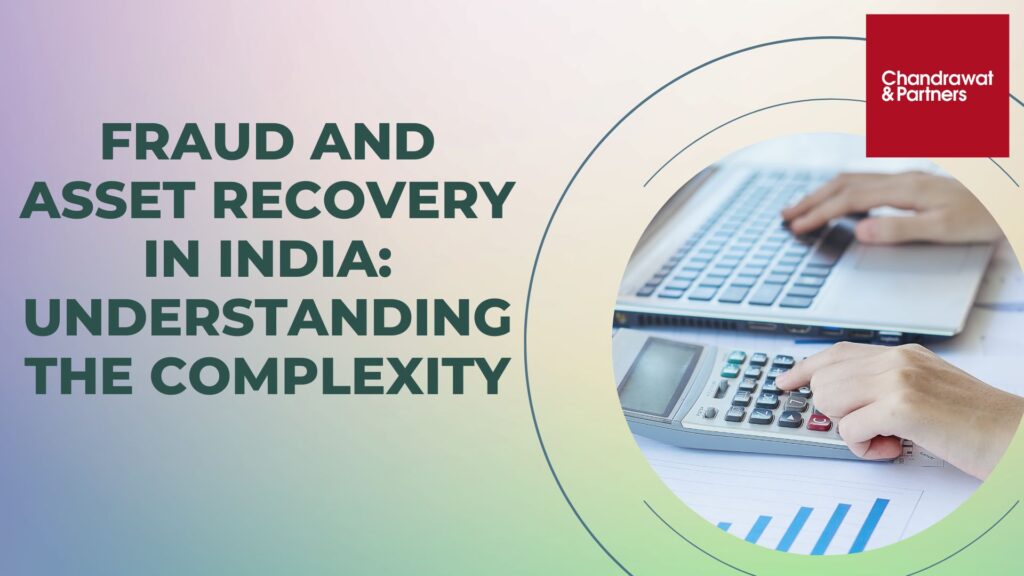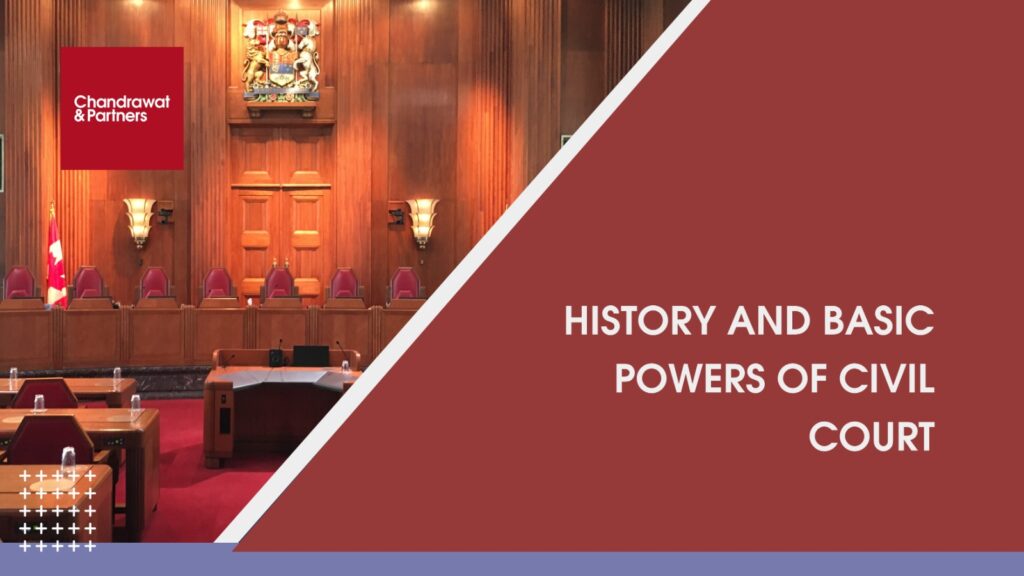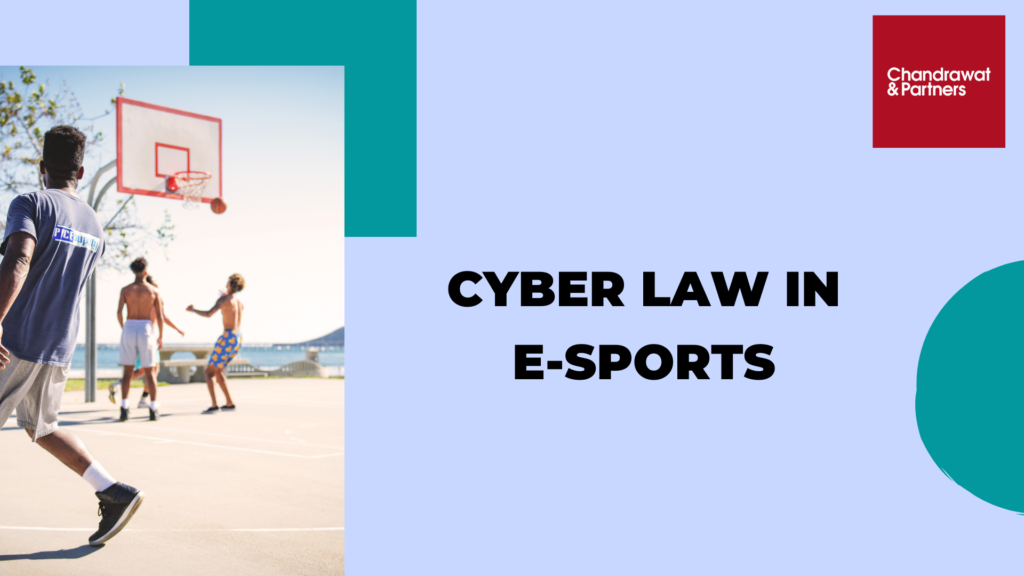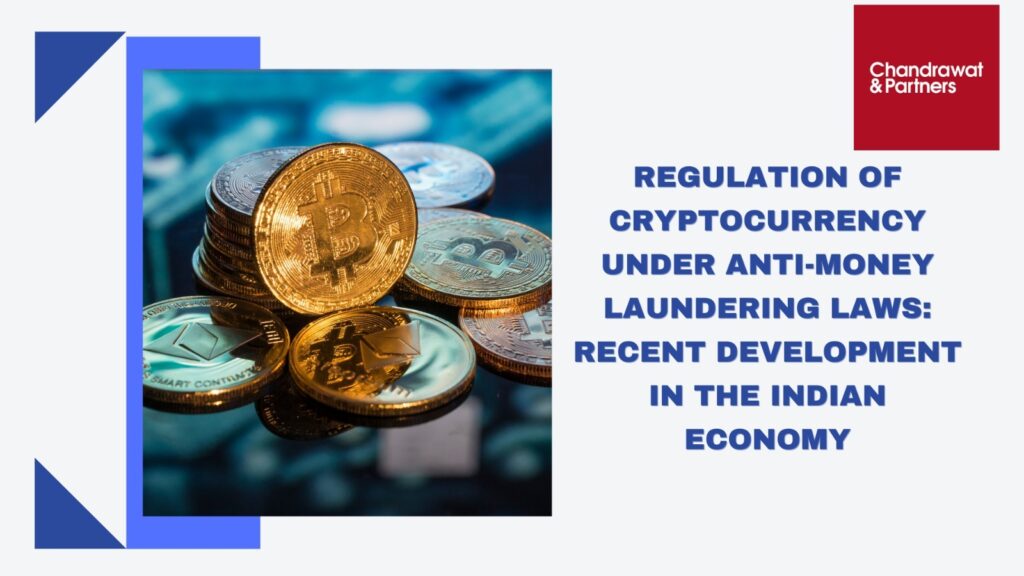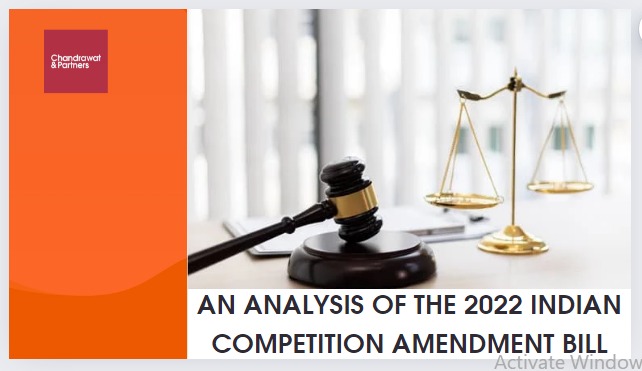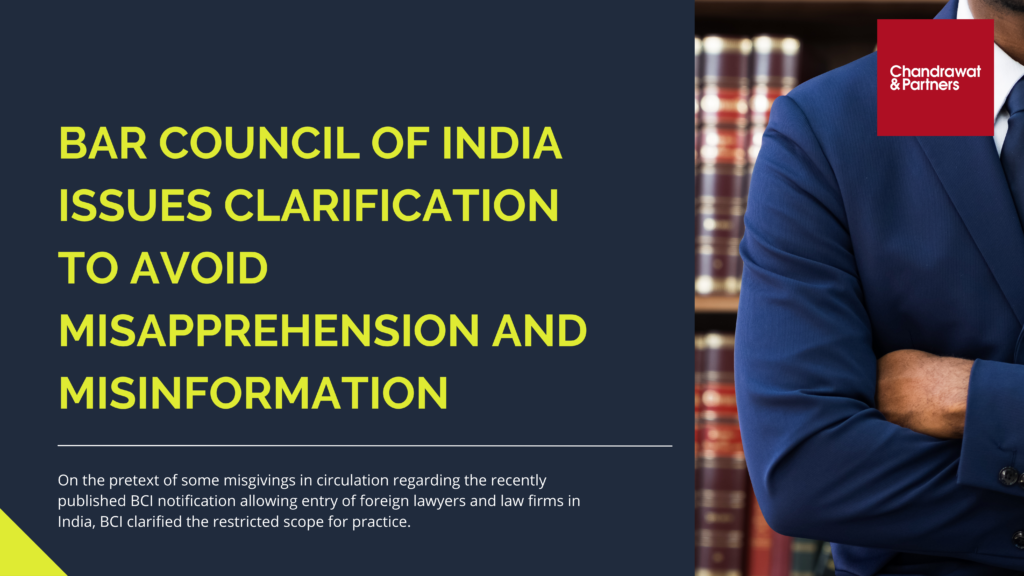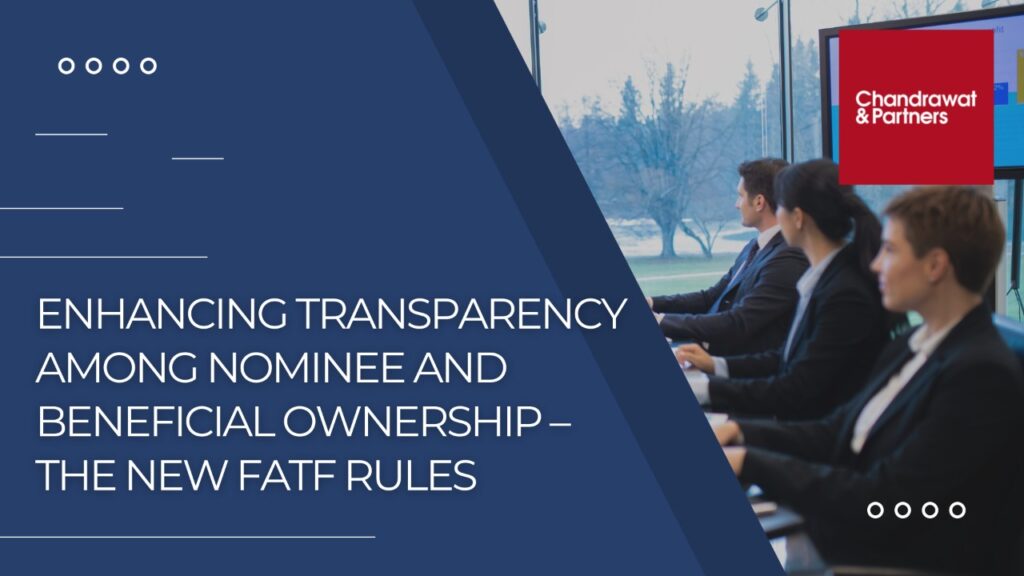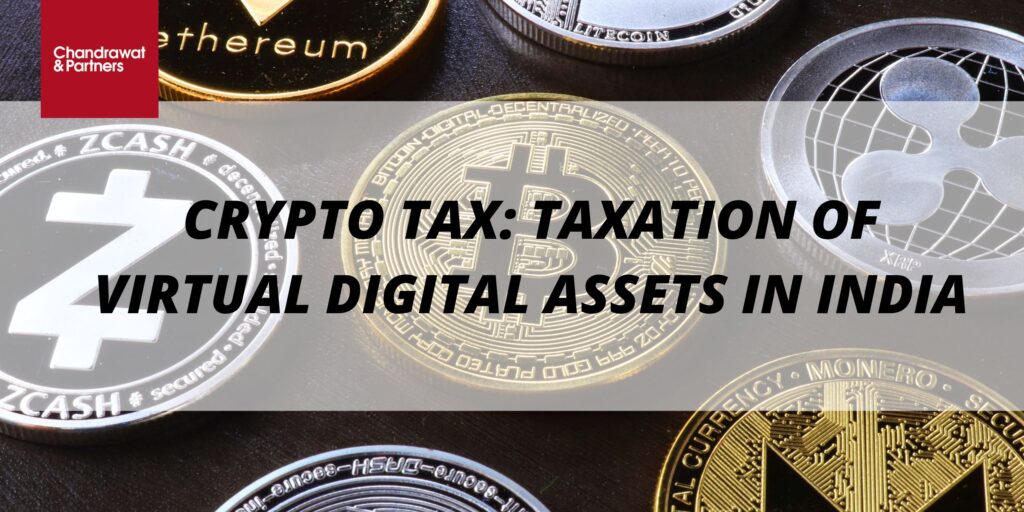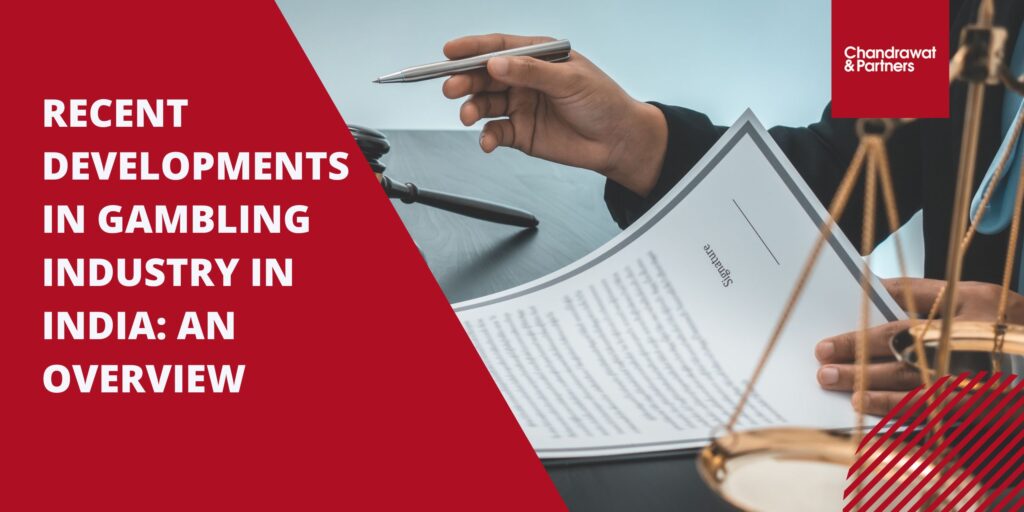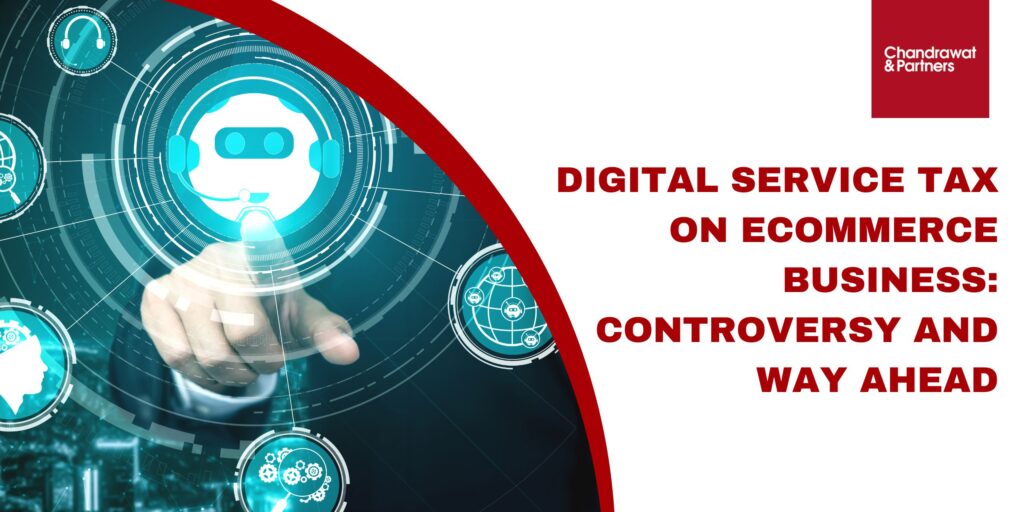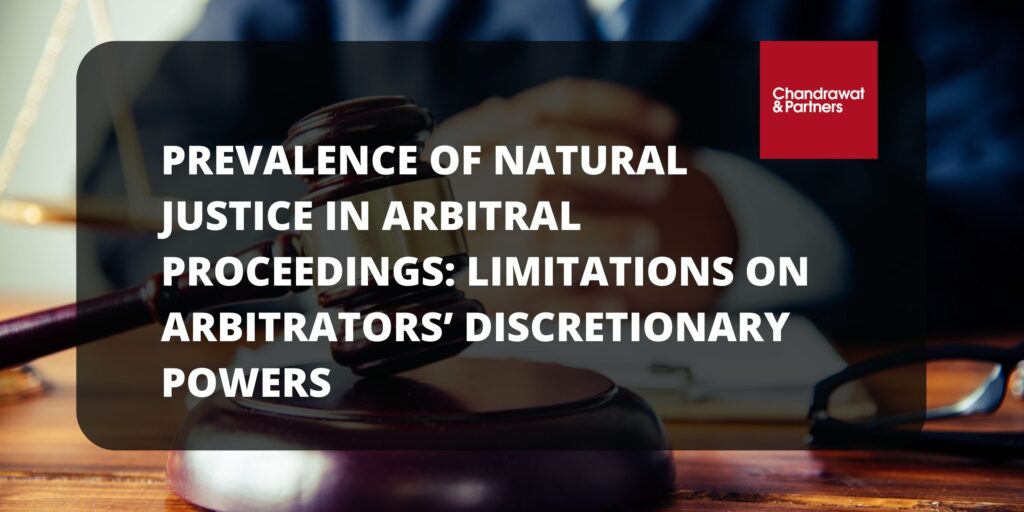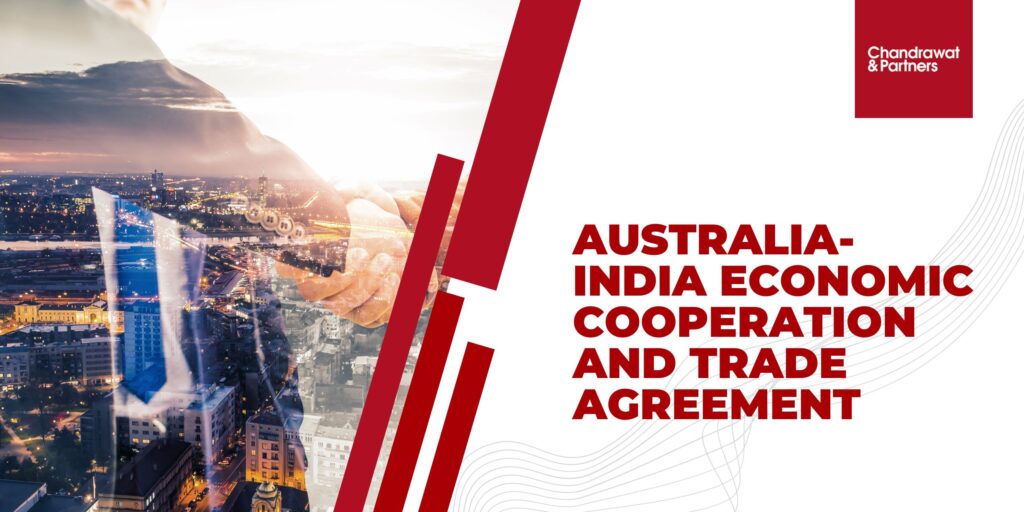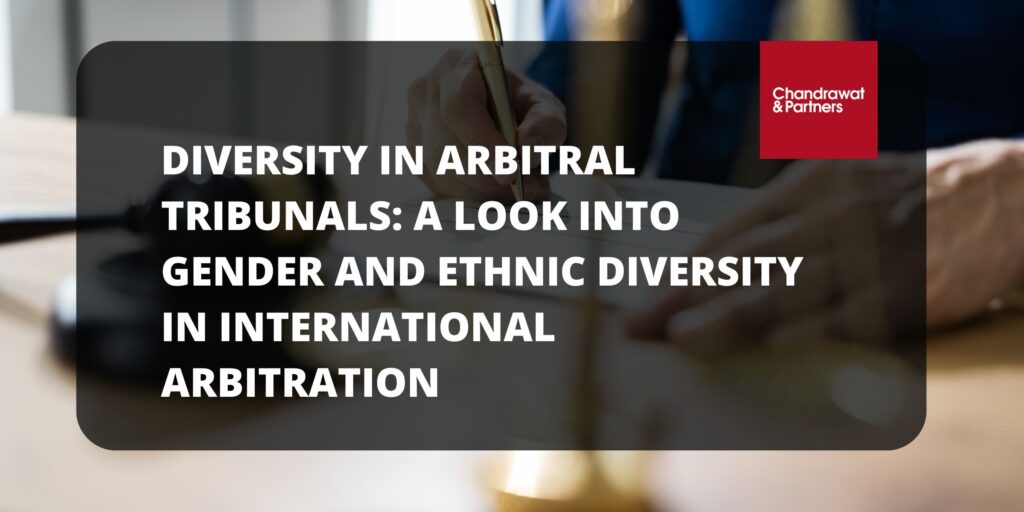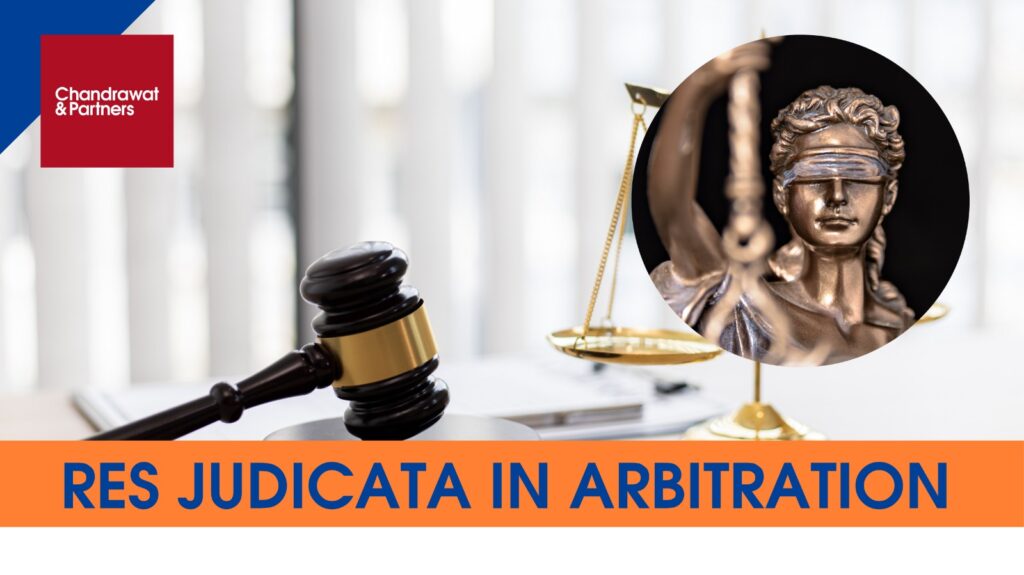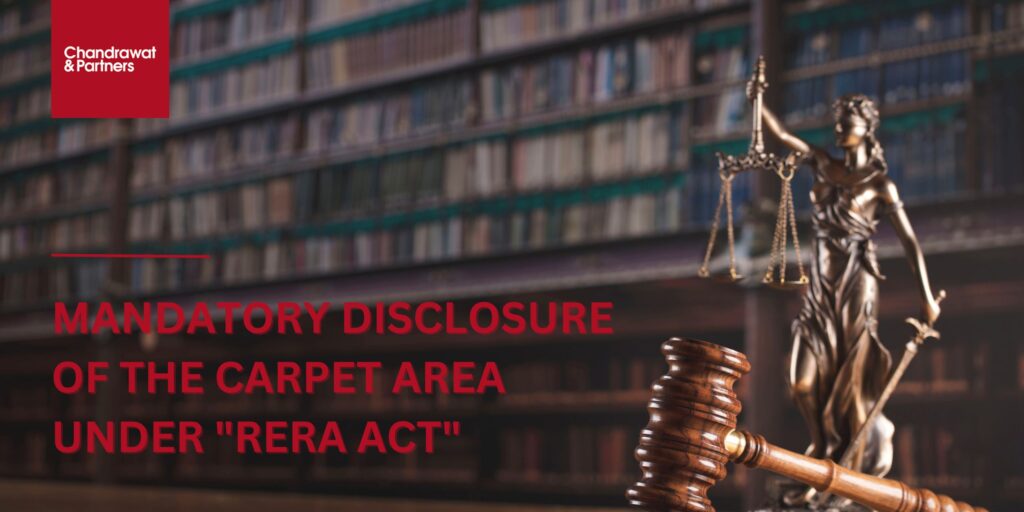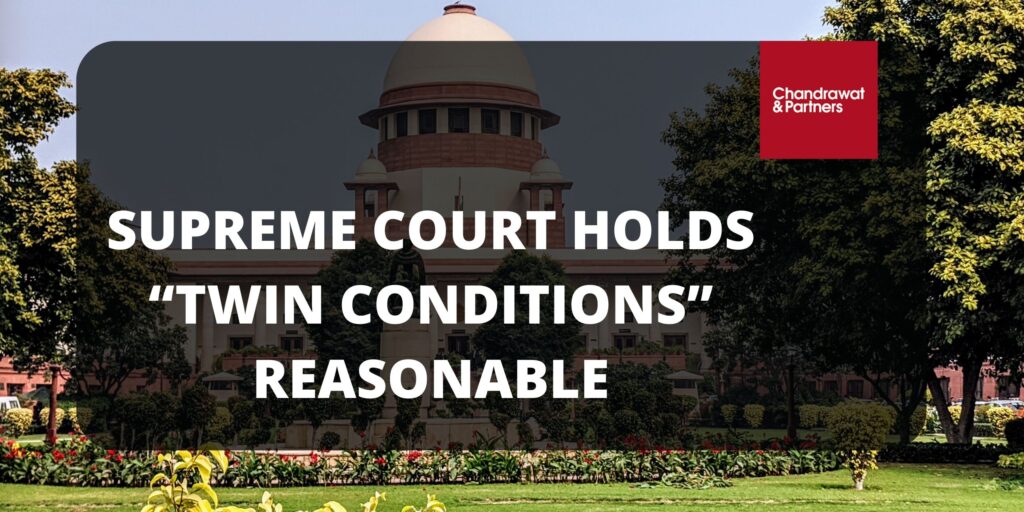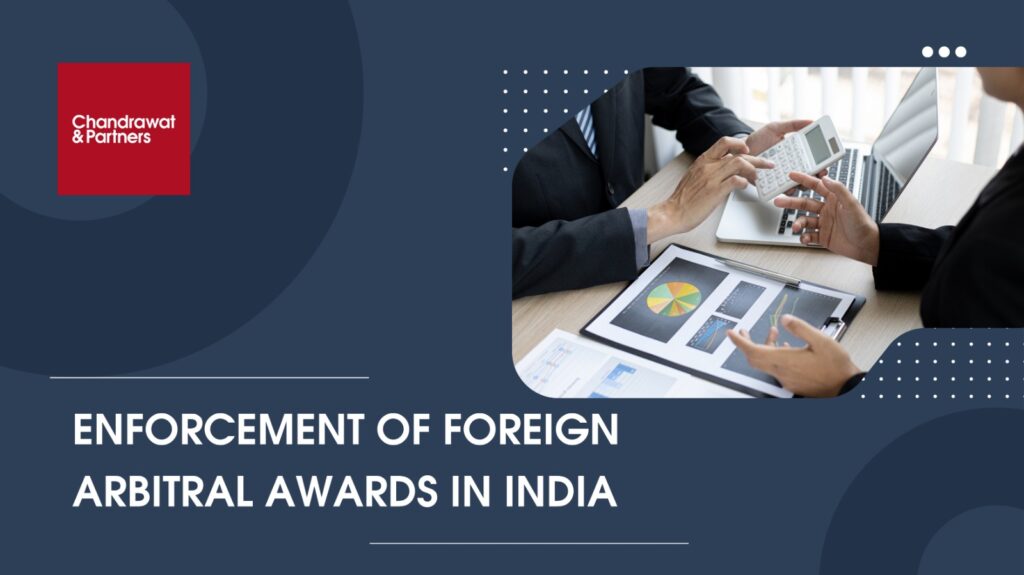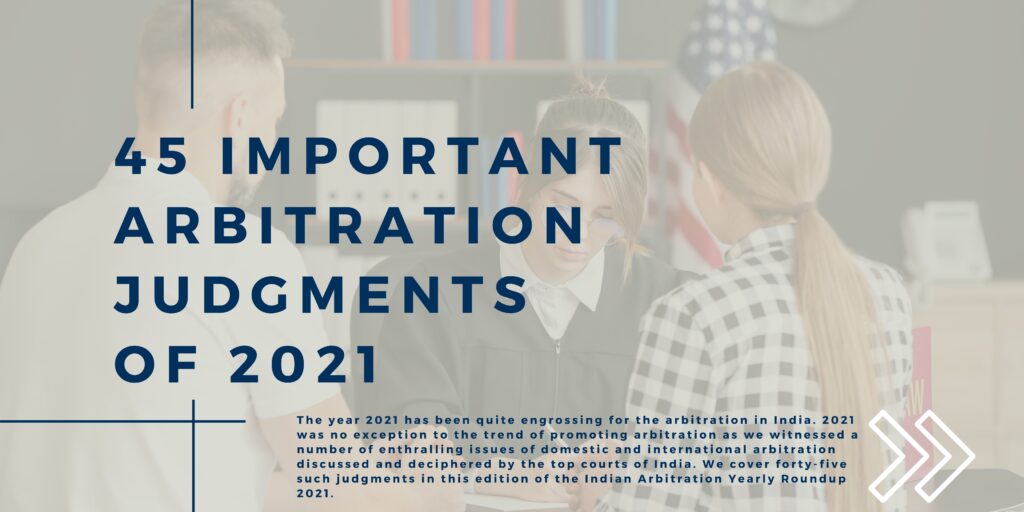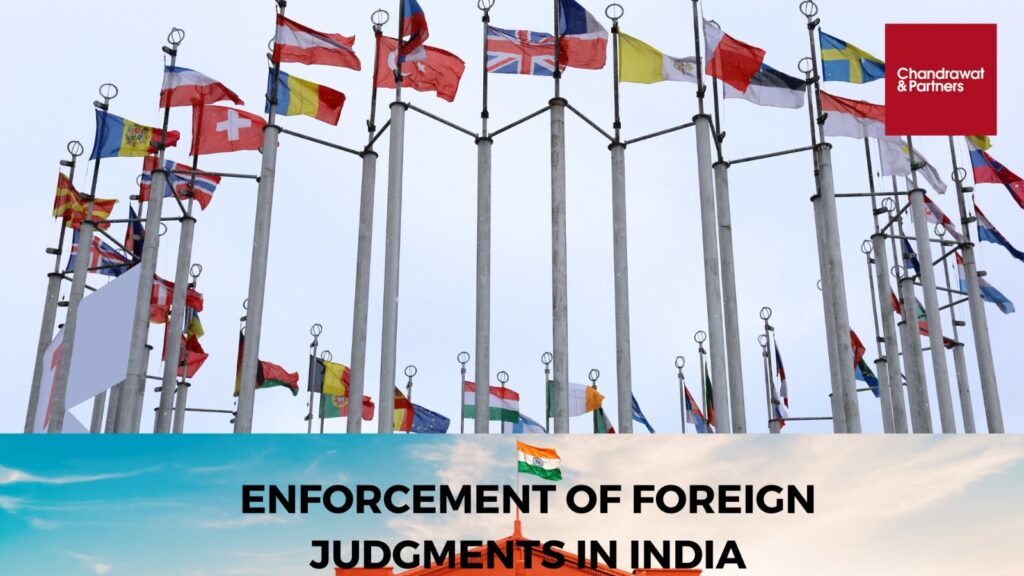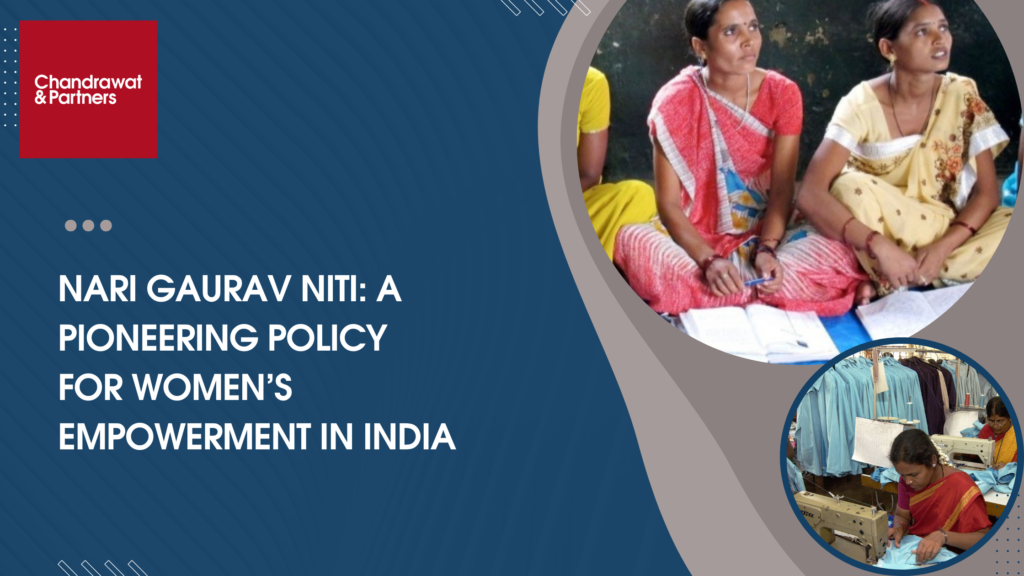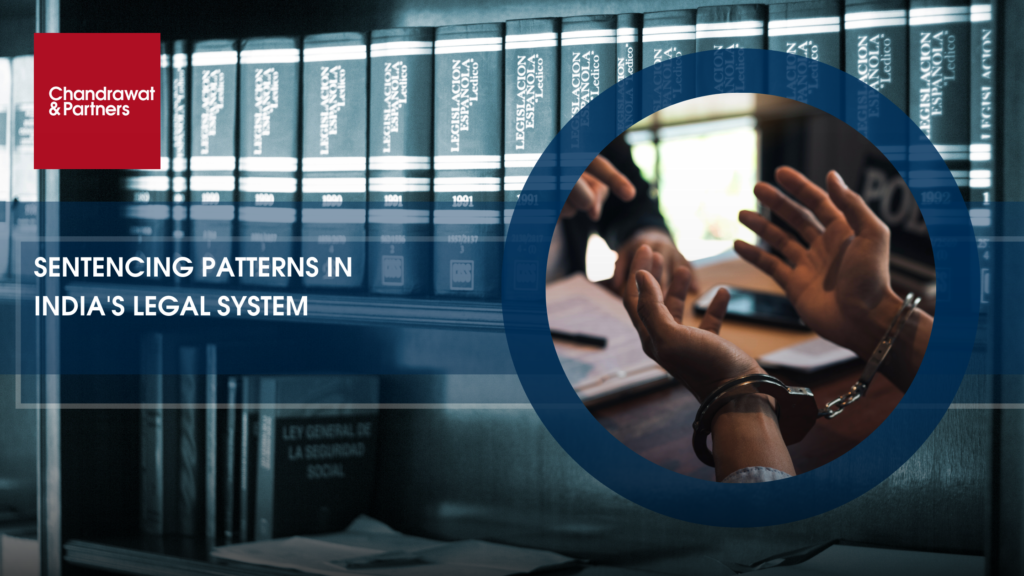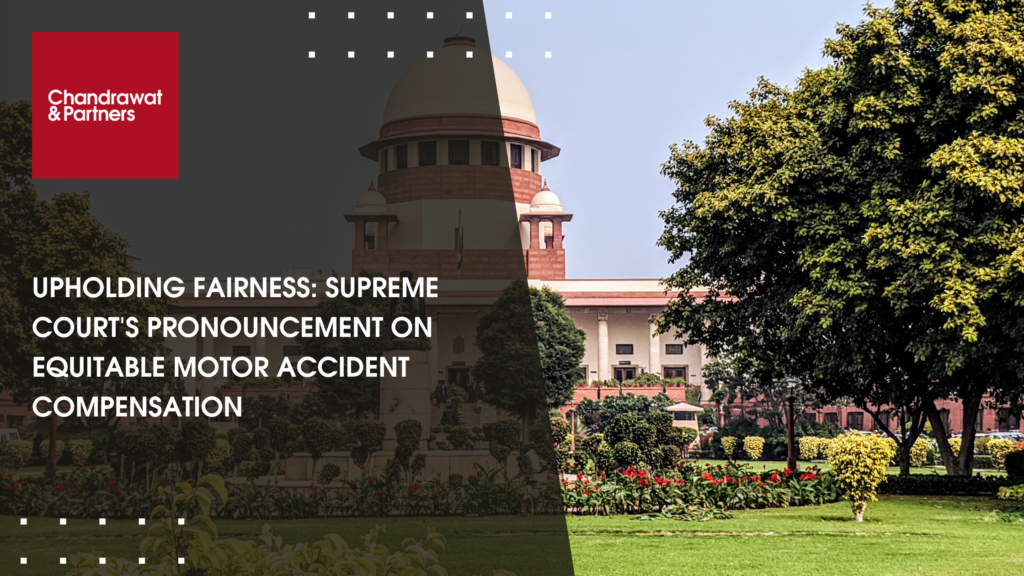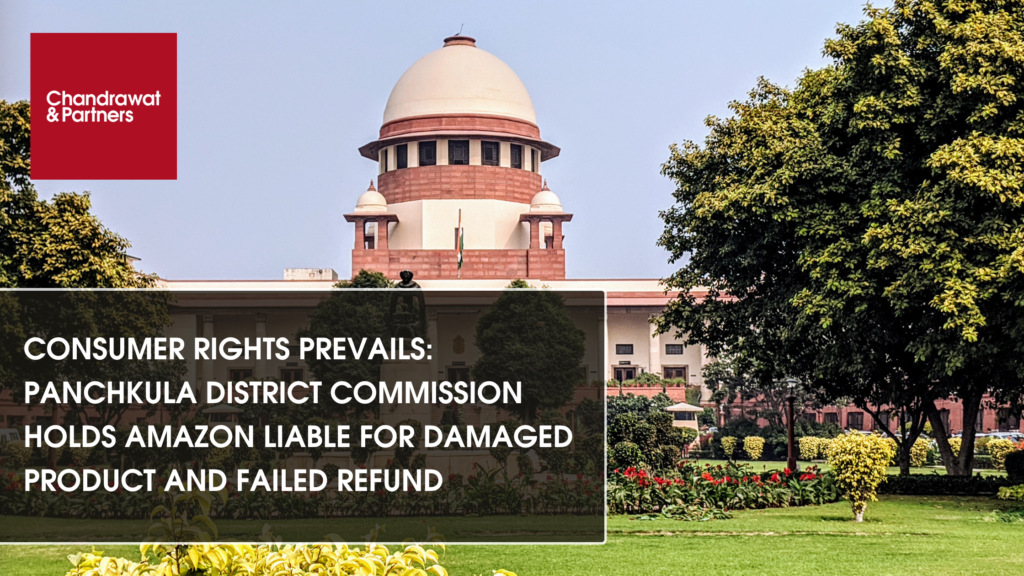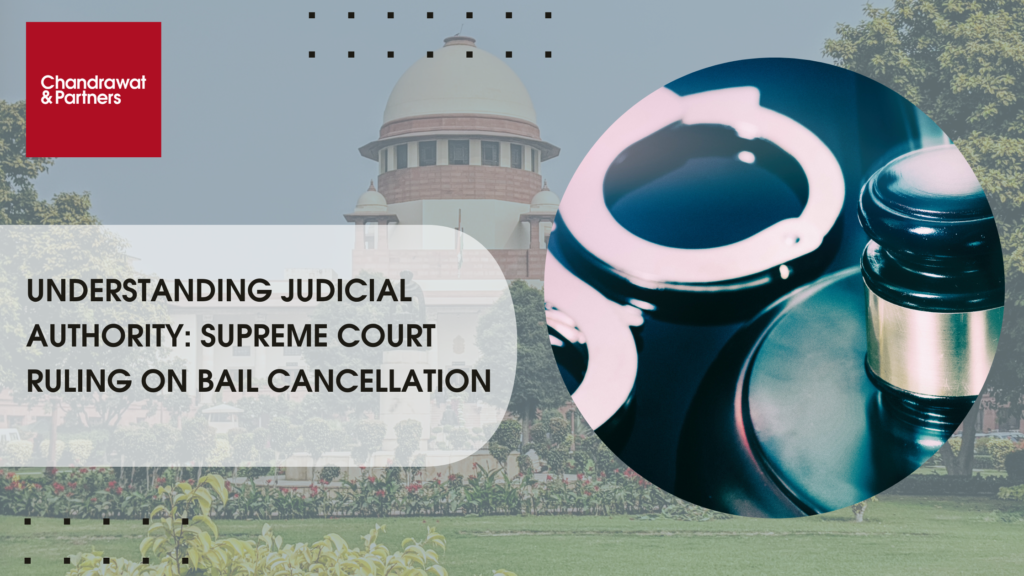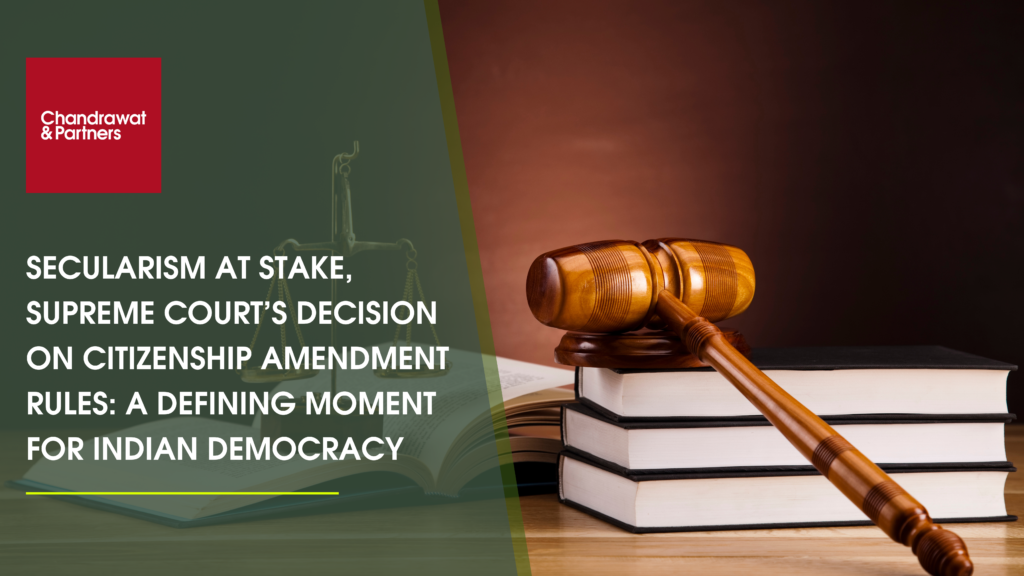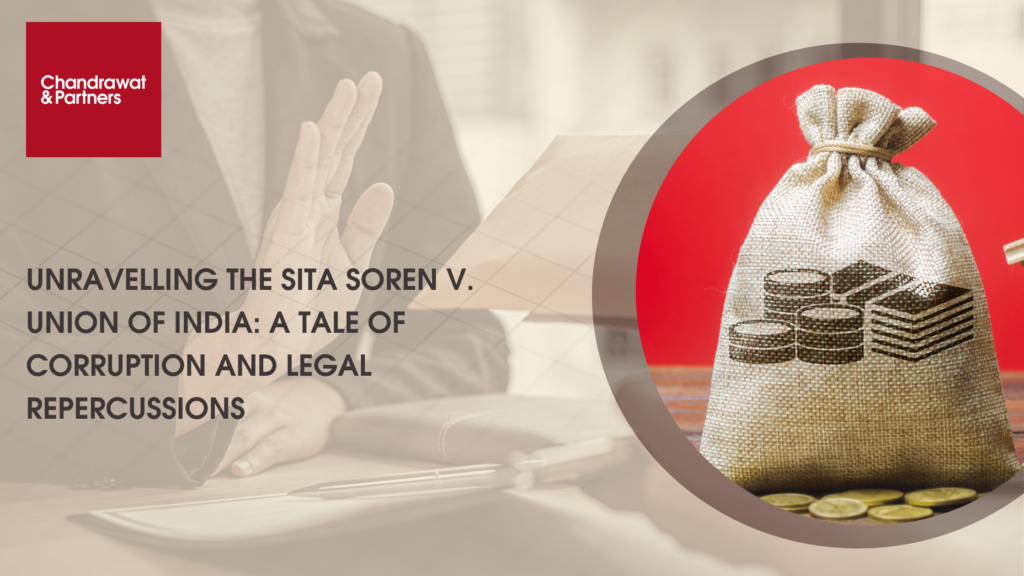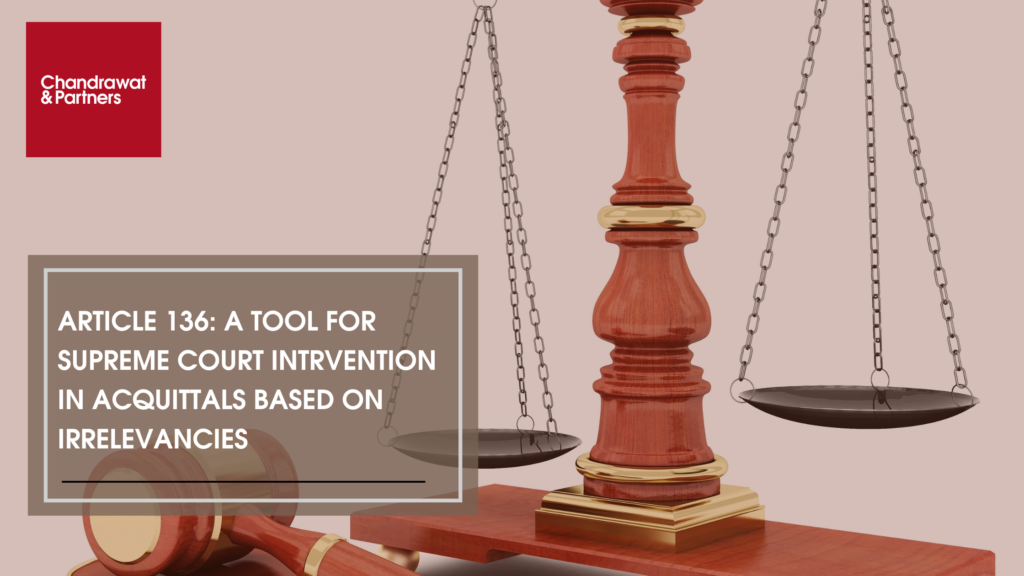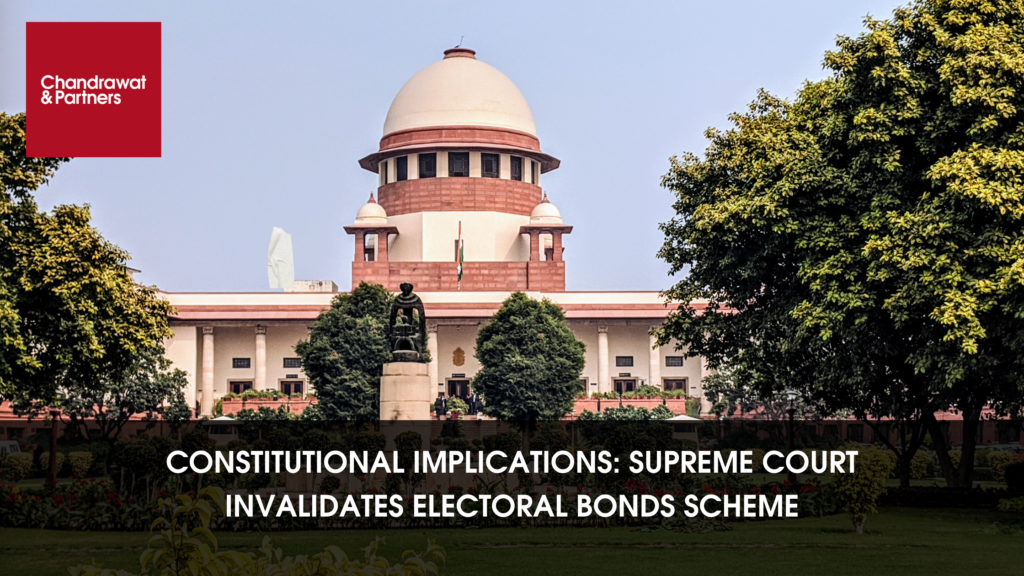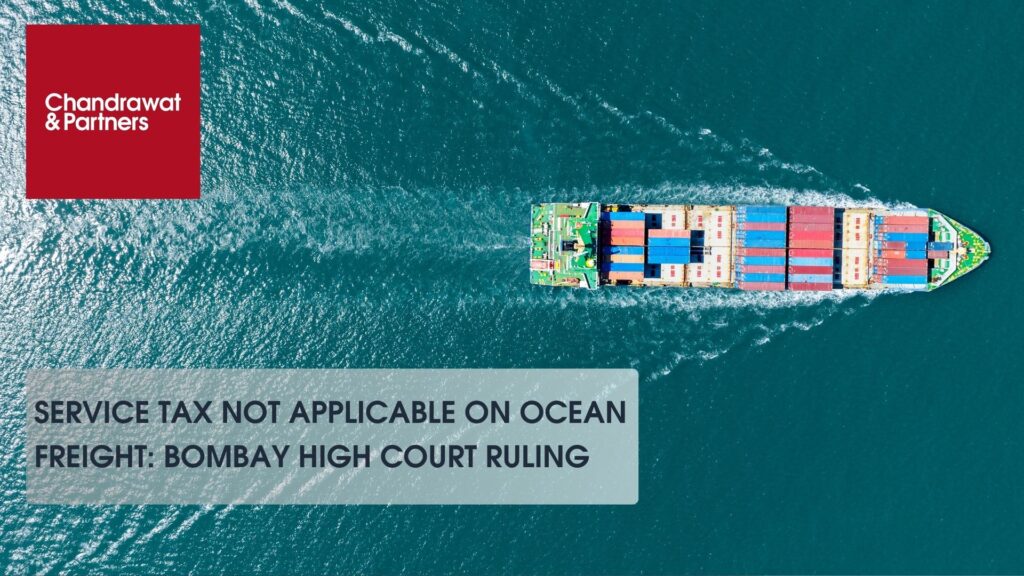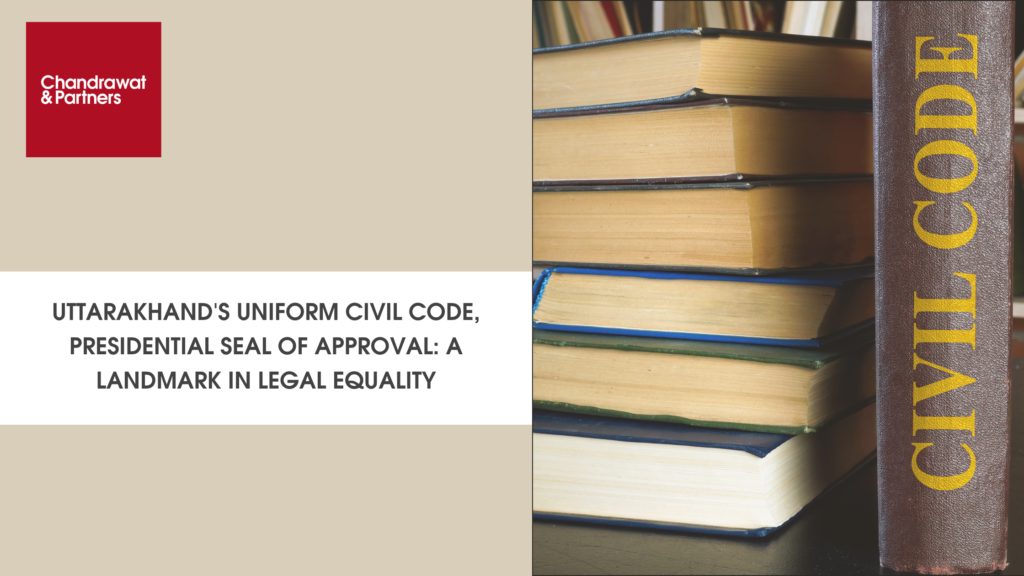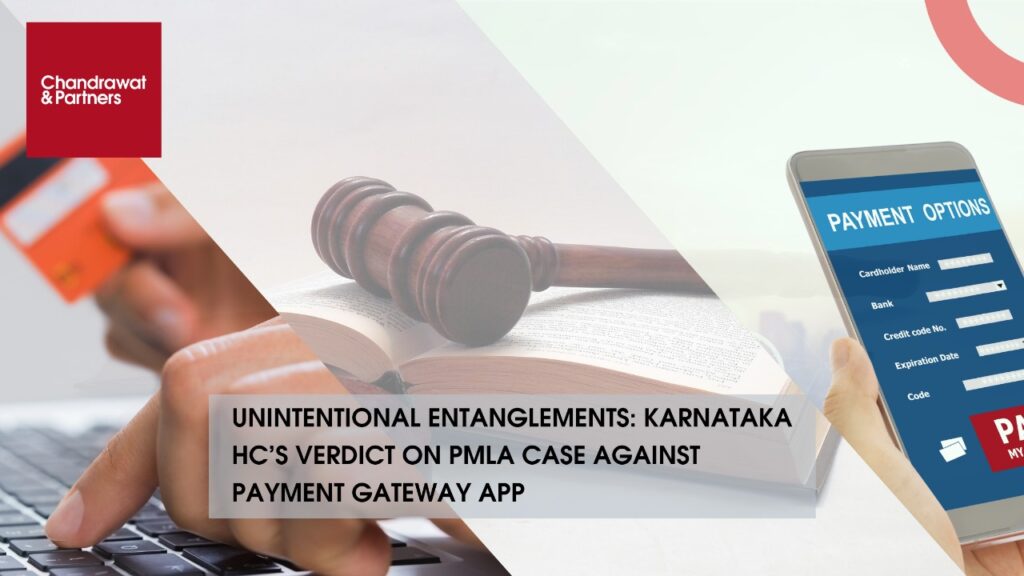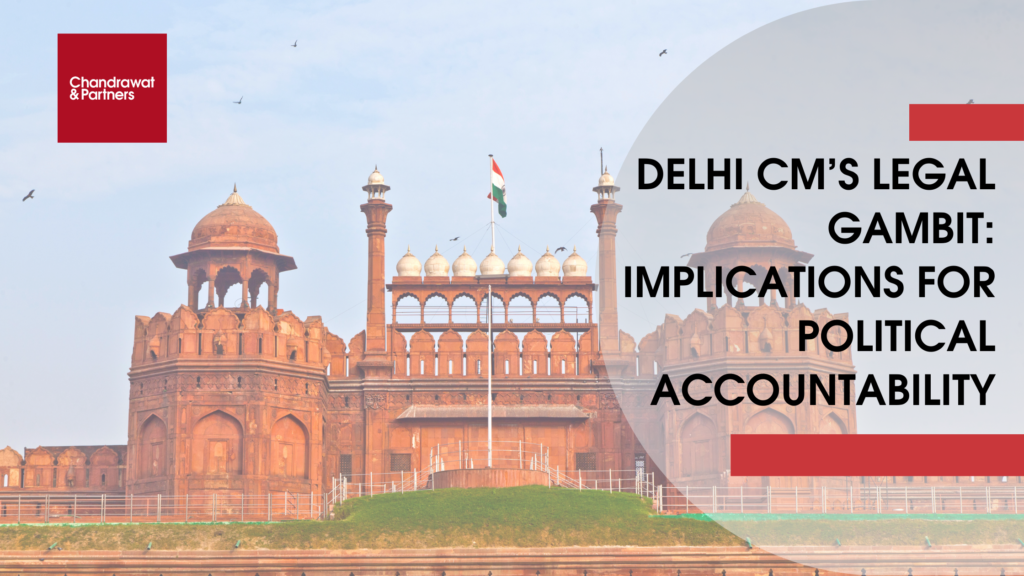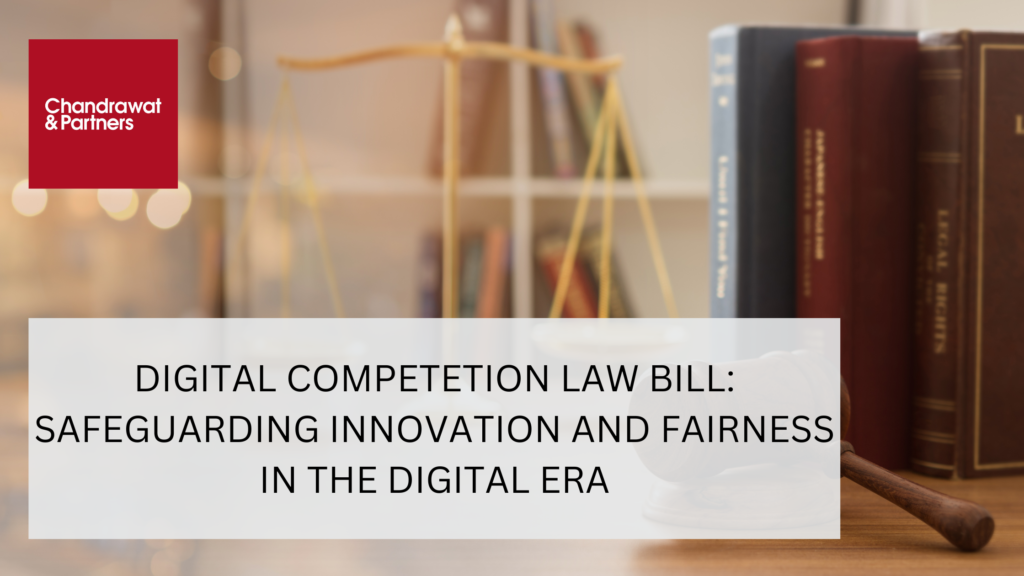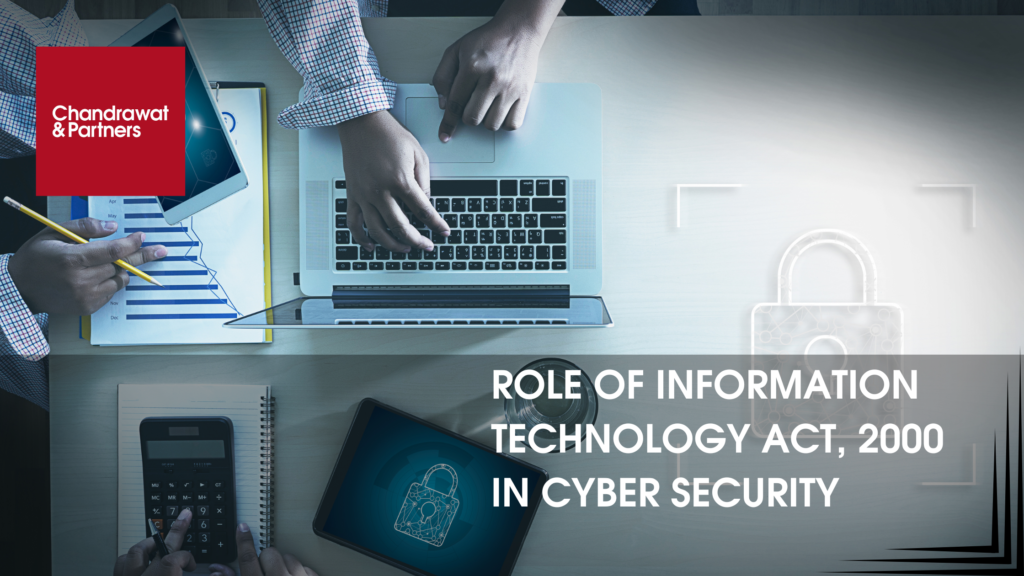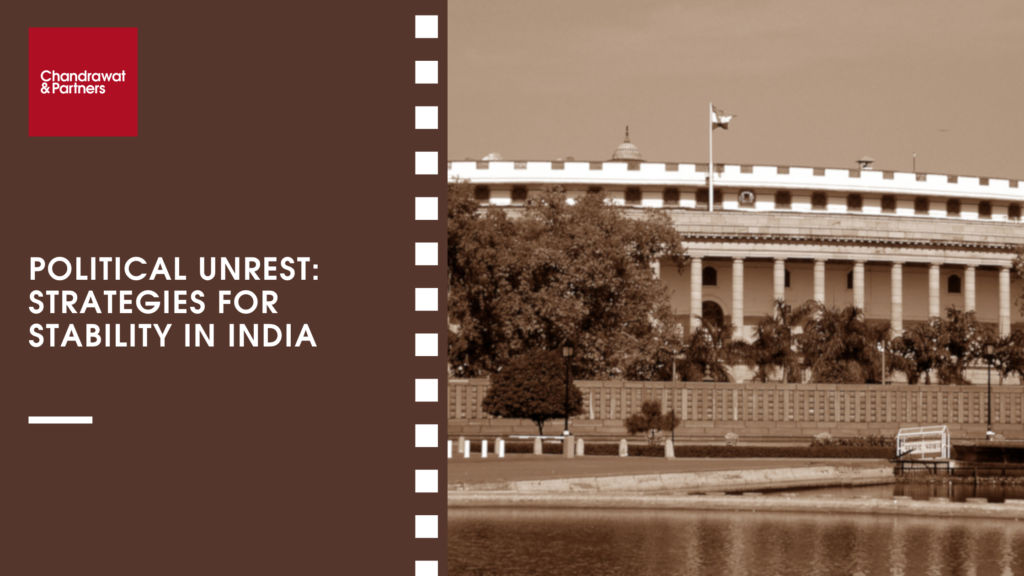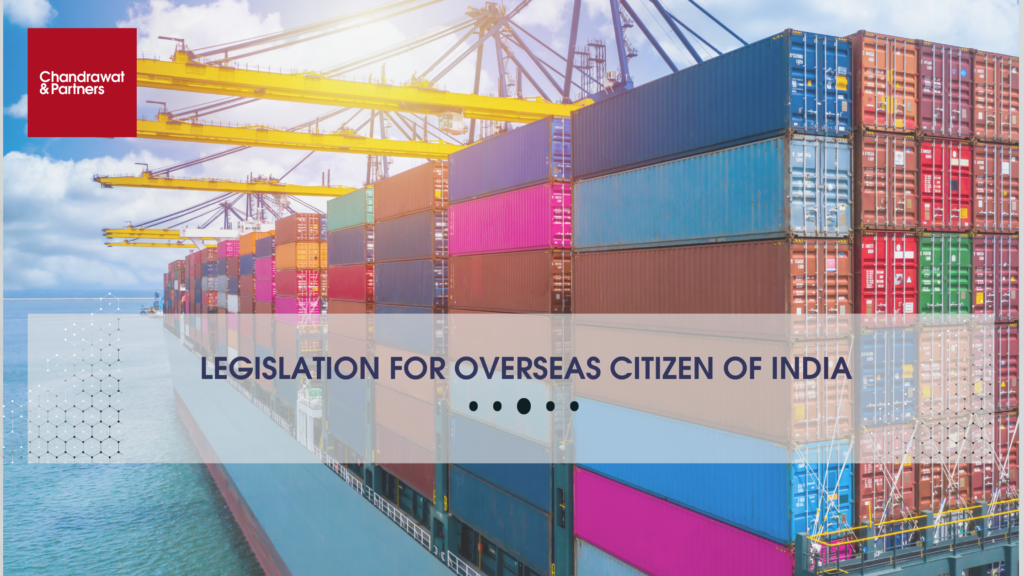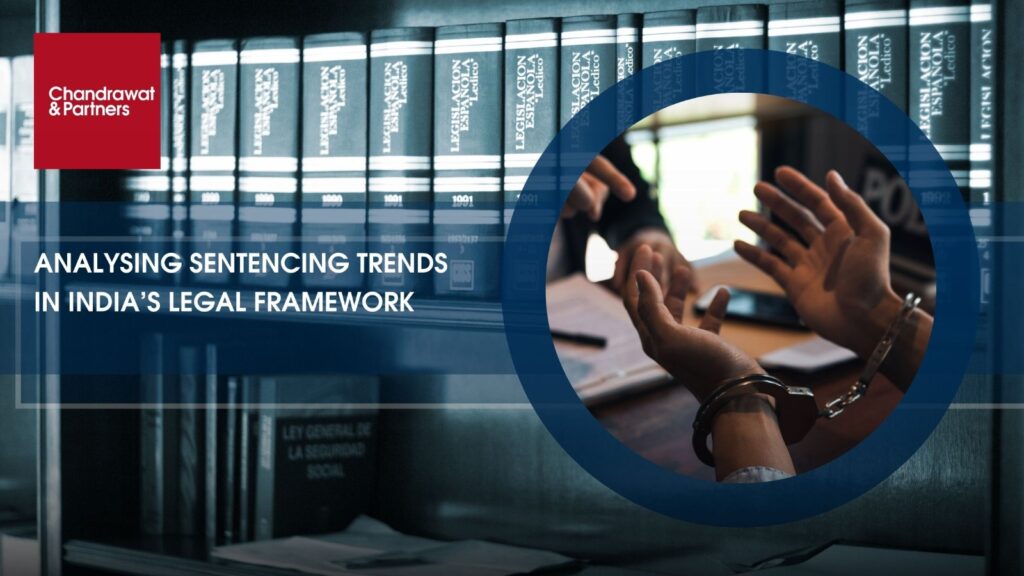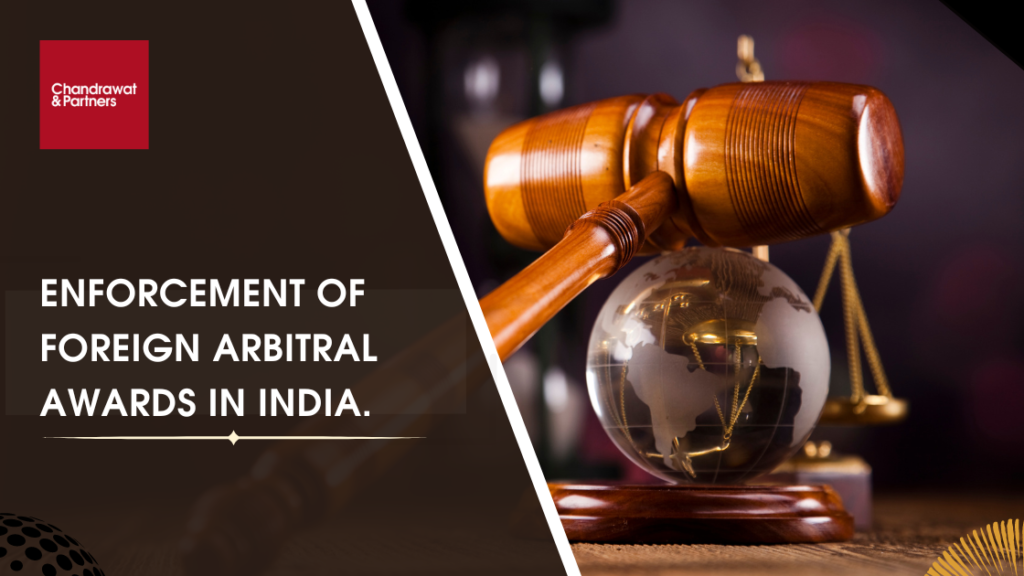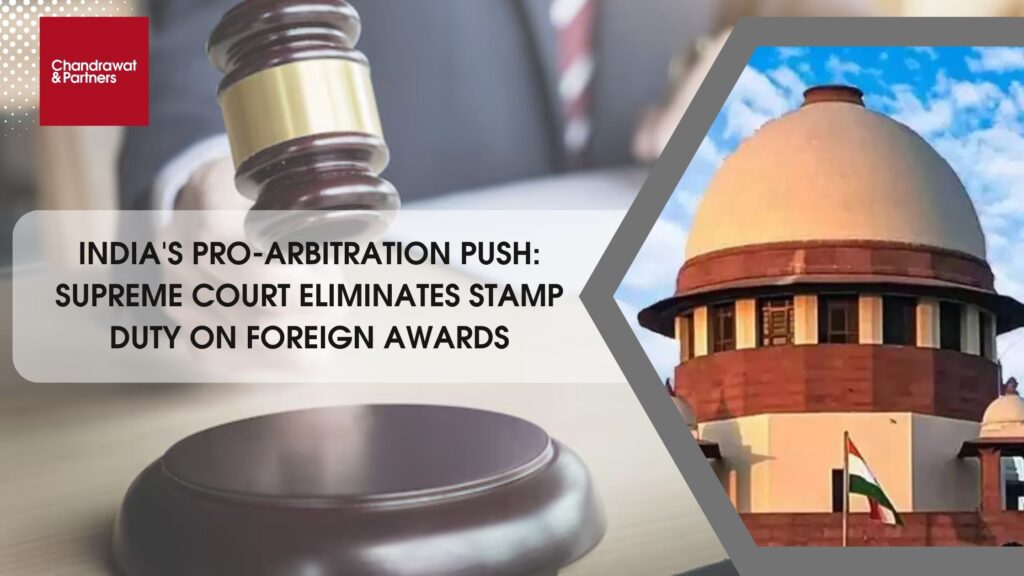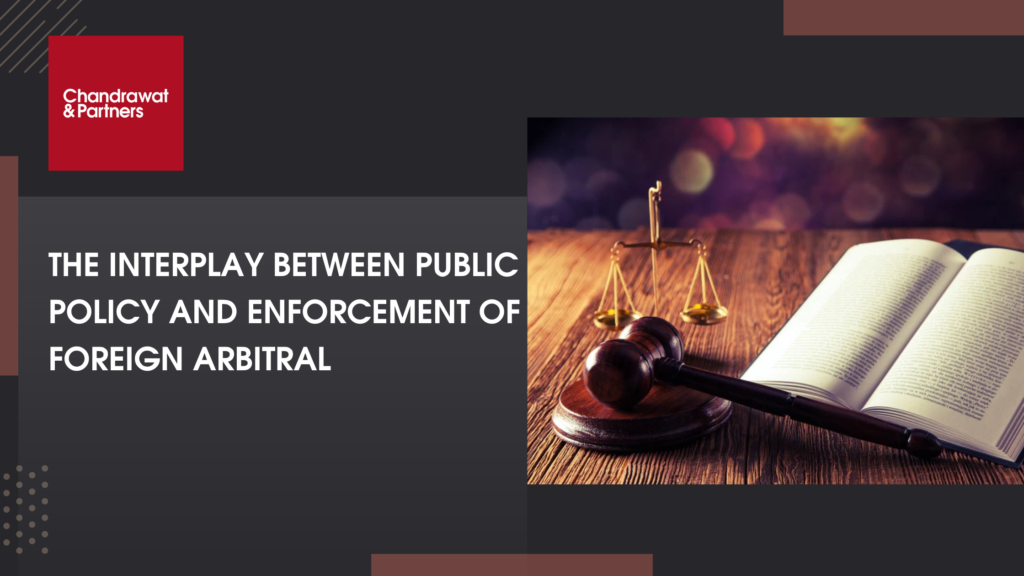Insights
Fiscal Strategies Compared: Insights From The 2023 And 2024 Budgets
National budgets are not just financial documents; they are reflections of a government’s priorities, strategies, and responses to current and future challenges. The budget reflects the government’s economic policies, addressing current economic challenges and setting the course for future development….
Read more
India To Boost Its Digital Infrastructure In Budget 2024
The 2024 Union Budget will be crucial in bolstering India’s digital infrastructure as the country moves closer to a digital future. With the goal of transforming India into a knowledge economy and society empowered by technology, the Digital India effort has made significant headway. However, the upcoming budget…
Read more
The Future Of Electric Vehicles In India: Fame iii And Beyond
India’s ambitious target of making 30% of all vehicles sales electric by 2030 is backed by the Faster Adoption and Manufacturing of Hybrid and Electronic Vehicles (“FAME III”) scheme which is expected to play a pivotal role in shaping the future of transportation in India. It is aimed at increasing subsidies for EV………..
Read more
Impact Of Upcoming Budget Tax Reform On EV Manufacturing
Electric Vehicles (“EVs”) have emerged as a cornerstone of sustainable transportation, promising to mitigate pollution and foster green mobility. An EV utilizes battery cells as its power source, comprising a rechargeable battery pack, a battery management system (BMS), an electric motor, and other electronic components……………..
Read more
India’s Real Estate Sector In The Grip Of Insolvency Crisis
India’s Real Estate Sector is currently facing a profound crisis marked by a surge in insolvency cases, according to the Insolvency and Bankruptcy Board of India (IBBI). Manufacturing sector stands at 40 percent, real estate at 21 percent, construction at 11 percent and trading at 10 percent of the surge. A major factor behind it is…
Read more
Digital Era And The Imperative Of Data Privacy
In this digital era, where people are entrusting their personal information more to digital platforms and services, individual data privacy has become a major concern and the need for data protection has grown ever since. Personal information such as date of birth, home address, and bank account information are the most sensitive…
Read more
Supreme Court Upholds Labourer’s Rights In Protected Legal Battle
In a landmark verdict, the Supreme Court of India has delivered a resounding message against frivolous litigation and the mistreatment of underprivileged individuals. The case, The State of Rajasthan v. Gopal Bijawat, involved a poor labourer who endured over two…
Read more
Ensuring Justice Knows No Boundaries: Kerala High Court’s Guidelines For Cross-Jurisdictional Police Investigations
In a digital age where crimes transcend geographical boundaries with ease, the issue of jurisdiction in law enforcement becomes increasingly complex. Recently, the Kerala High Court in Noel Joseph v State of Kerala took a significant step in addressing this challenge…
Read more
Indian Journalist Visa
An Indian Journalist Visa is designed for foreign professionals engaged in journalism, photography, documentary filmmaking, or working in audio-visual news production. This includes representatives of radio and television organizations, travel writers, and…
Read more
Protecting Marital Rights: The Imperative For Compulsory Registration Of NRI Marriages
In the intricate tapestry of India’s legal landscape, the institution of marriage holds profound significance, not only culturally and socially but also legally. However, amidst the rich diversity of marital unions, there lurks a troubling trend in the rise of fraudulent…
Read more
The Sony-Zee Merger Saga: A Complex Knot With Unravelling Threads
In September 2021, the Indian media landscape buzzed with anticipation as Sony Pictures Networks India (“SPNI”) and Zee Entertainment Enterprises (“ZEEL”) announced a potential $10 billion merger. This union promised to create a media behemoth,…
Read more
A Deep Dive Into The Electoral Bond Judgment: Transparency, Democracy, And The Future Of Political Funding In India
On February 15, 2024, the Supreme Court of India unanimously declared the Electoral Bond Scheme (“EBS”) unconstitutional, marking a monumental shift in India’s political landscape. This blog delves into the multifaceted dimensions of this landmark judgment,…
Read more
High Court’s Power To Review Offences Post Charge Sheet In FIR Quashing Petitions
The High Court is not prohibited from exercising its inherent jurisdiction and could still determine whether or not the crimes claimed to have been committed were made out in the first place based on the First Information Report (“FIR”), charge sheet, and other documents…
Read more
Right To Adopt VS. Child Welfare: Unpacking The Delhi HC Judgment On Parental Eligibility
The recent judgment by the Delhi High Court in Debarati Nandee v Union of India & Anr + Connected matters on the adoption of children has sparked debate and introspection. The court ruled that “the right to adopt is not a fundamental right” and upheld regulations…
Read more
RBI Doubles Down: Capital Hike For SFBS – Boon Or Bane For Financial Inclusion?
Recently, the Reserve Bank of India (“RBI”) sent ripples through the financial sector with a seemingly simple announcement: doubling the minimum capital requirement for Small Finance Banks (“SFBs”) from Rs 100 crore to Rs 200 crore. But beneath this seemingly…
Read more
Odisha’s Red Ant Chutney Gets A Geographical Indication Tag
Odisha’s culinary landscape just received a remarkable addition with the recognition of its traditional Kai chutney, made with red weaver ants, earning the prestigious Geographical Indication (“GI”) status. This unique delicacy boasts distinct flavours,…
Read more
Upholding Women’s Maternity Rights
In a transformative legal pronouncement, the Himachal Pradesh High Court in the case The Secretary, Managing Committee of Loreto Convent Tara Hall School Vs Sharu Gupta and others has recently illuminated the imperative of safeguarding women’s…
Read more
Privacy and Security Measures in The Telecommunication Act 2023
As of July 2022, India, the world’s second-largest telecommunications market with an 85.11% teledensity, actively engages in the 5G race, advancing the Digital India initiative. The Telecommunication Act 2023, enacted in December 2023, is a pivotal step,…
Read more
IBC Resolved A Record Of 273 Stressed Cases In 2023
In a landmark achievement, the Insolvency and Bankruptcy Code (“IBC”) demonstrated remarkable resilience in 2023, successfully resolving a record-breaking 273 stressed cases. This notable milestone marks a robust upward trajectory, surpassing…
Read more
Prolonged Separation From Spouse Without Cause Itself Cruelty Under Hindu Marriage Act
The Allahabad High Court’s recent affirmation of a divorce decree highlights the complexities of marital relationships and the legal considerations surrounding them. In the case of Charu Chug Alias Charu Arora vs. Madhukar Chugh, a married couple,…
Read more
‘Saptapadi’ Essential For Validity Of Hindu Marriages
According to the Madhya Pradesh High Court, in Hindu law, a marriage is not considered a contract and cannot be considered legally binding until “Saptapadi” is performed. This statement was made by the Madhya Pradesh High Court in response to a…
Read more
The Right To Reside And Settle In India Cannot Be Claimed By Foreigners
According to the Delhi High Court, foreigners’ fundamental rights are restricted to the protection of their life and liberty under Article 21 of the Indian Constitution, and they cannot claim the right to live and settle in India. “We may also note that a foreign national…
Read more
Children From Void Marriage Can’t Be Denied Share In Their Parent’s Property
In the complex landscape of family law, the issue of property inheritance for children born out of void marriages has been a subject of legal scrutiny and debate. A void marriage is deemed null and void from the beginning, lacking legal validity. Despite the legal nullity…
Read more
Jharkhand High Court Upholds Woman’s Duty To Serve Mother-In-Law
At the core of this legal saga lies the recognised traditional duty of Indian women to care for elderly in-laws, as astutely noted by the Jharkhand High Court in the case Rudra Narayan Ray v. Piyali Ray Chatterjee. The court, in its sagacious judgment, not only…
Read more
Supreme Court Advocates Enhanced Compensation Awareness In Hit & Run Cases
The Supreme Court has recently issued important guidelines in S Rajaseekaran v. Union of India and others , to guarantee that victims of hit-and-run accidents are aware of the Compensation of Victims of Hit and Run Motor Accidents Scheme, 2022. In particular, the court focused…
Read more
The Telecommunication Act 2023: Promoting Competition And Innovation
The Telecommunication Act 2023 has been approved by Parliament to update and organize the rules for telecommunications. The main goals are to encourage competition and innovation in the field. This new law will replace the old Indian Telegraph Act…
Read more
Exploring The Role Of Telecommunication Companies In The Digital Age
The Telecommunications Act of 2023, recently passed by the parliament, is deemed by many as exceptionally stringent legislation. It mandates government oversight over all forms of communication, whether transmitted, emitted, or received via wired,…
Read more
Indian Employment Visa
An Employment Visa is conferred upon individuals intending to relocate to India for employment, particularly those joining multinational corporations to fulfill roles within their Indian branches. This visa is also extended to professionals overseeing projects or…
Read more
Regulatory Compliance for Auto Dealerships
Auto dealerships play a crucial role in the automotive industry, offering consumers the chance to buy vehicles and contributing to economic growth. However, for these businesses to run smoothly and protect both customers and dealerships, it’s vital to follow…
Read more
Indian Student Visa
A Student visa is granted to individuals providing evidence of admission to a full-time course in a recognized educational institution in India. This encompasses various categories, including school education, higher education, provisional student visas…
Read more
Indian Tourist Visa
Embarking on a journey to India as a tourist has been made effortlessly achievable through the convenience of the Indian Tourist Visa. This electronic visa, available online, liberates travellers from traditional paper applications at Indian Embassies. Beyond catering to…
Read more
Indian Medical Attendant Visa
The Indian Medical Attendant Visa facilitates caregivers, including family members, nurses, and friends, to accompany a patient for medical treatment in India. This special e-visa permits them to offer essential support and assistance throughout the entire …
Read more
RBI Proposes Stricter Rules for Housing Finance Firms
The Reserve Bank of India (RBI) on Monday, presented a draft circular, strategically outlining a series of measures to bring about a comprehensive alignment of regulations governing Housing Finance Companies (HFCs) with those applicable to…
Read more
Indian Conference Visa
The Indian Conference Visa is issued to delegates invited to attend conferences, seminars, or workshops organized in India by various entities, including Government of India ministries, state governments, public sector undertakings, educational institutions,…
Read more
Indian Medical Visa
When seeking medical treatment abroad, the complexities of obtaining a visa should not be an added concern, particularly in emergencies requiring urgent care. Recognizing this, the Government of India has introduced an efficient solution in the form of an…
Read more
Indian Transit Visa
International travellers require an Indian Transit Visa when embarking on a prolonged journey involving two or more flights with a layover in India. This applies particularly if they have a connecting flight to another destination from an Indian airport. …
Read more
Indian Business Visa
In the era of globalization and economic liberalization, India has emerged as a significant player in the international business landscape. The country offers unique commercial opportunities, abundant natural resources, and a skilled workforce, making it an…
Read more
Protecting Auction Purchasers’ Deposits
The Karnataka High Court recently delivered a significant judgment highlighting the rights of auction purchasers in the case of Kalyanamurthy K vs. State Bank of India. The case revolved around the forfeiture of a portion of the deposit made by an…
Read more
New GST Rules For Online Gaming
In a significant development, Finance Minister Nirmala Sitharaman addressed the Lok Sabha on Tuesday, shedding light on the recent changes in Goods and Services Tax (“GST”) regulations pertaining to online gaming. The clarification focuses on the valuation…
Read more
RBI introduces bank-level card tokenization
In a significant move aimed at bolstering transaction security and enhancing user convenience, the Reserve Bank of India (RBI) announced the introduction of Card-on-File (CoF) token facilities at the level of banks and other financial institutions. This initiative is set to…
Read more
HP Court: Pocso Cases Quashable With Compromise
The Indian judiciary has been actively adjudicating judgments in matters falling under the ambit of the Protection of Children from Sexual Offences Act, 2012 (“POCSO”). The offences under the POCSO Act are not compoundable, as has been rightly held by the courts…
Read more
The Rise of Sustainable Tourism: How Hotels Are Going Green
The idea of sustainable tourism has become a game-changer in the hospitality sector because of growing environmental concerns and awareness of the effects of human activity on the environment. Achieving a delicate equilibrium between catering to….
Read more
Police Custody Provision and Gender-Neutral Legal Reforms In New Criminal Procedure Bill
In the recent winter session of the Indian Parliament, the union government introduced a revised version of the Bharatiya Nagarik Suraksha Sanhita Bill (BNSS), aiming to replace the longstanding Code of Criminal Procedure 1973. While the BNSS addresses…
Read more
RBI tightens AIF rules for banks and NBFCS
The Reserve Bank of India (RBI) recently introduced stringent limitations on regulated entities (REs), encompassing both non-banking finance companies (NBFCs) and banks. This regulatory move prohibits these entities from participating in any Alternative…
Read more
Data privacy and security regulation for telecommunication companies in India
In an era where digital connection laws exist, Indian telecommunications businesses are essential to the interchange of data and communication. Stricter laws are becoming more and more necessary to protect the security and privacy of the enormous volumes….
Read more
Bombay high court upholds termination over Facebook posts
In a recent legal development that has significant implications for the intersection of freedom of speech and workplace conduct, the Bombay High Court rendered a decisive judgment in the case of Hitachi Astemo Fie Pvt. Ltd. v. Nirajkumar Prabhakarrao Kadu…
Read more
The psychology of giving: Insights into donor behavior and its impact on NGOs
The act of giving is a fundamental and intrinsic element of human nature, influenced by a myriad of psychological, social, and emotional factors. In the context of Non-Governmental Organizations (“NGOs”), unraveling the intricacies of the psychology of giving ….
Read more
Delhi Consumer Commission Penalizes Retailer For Unfair Paper Bag Charges
The District Consumer Disputes Redressal Commission (East Delhi) recently fined Lifestyle International Pvt Ltd Rs 3,000. This penalty resulted from a consumer complaint about the retailer’s non-disclosure of a Rs 7 charge for paper carry bags. The verdict….
Read more
What’s happening in India’s forests?
India is home to a diverse range of forests—moist and dry tropical forests, temperate and subtropical montane forests, alpine forests and scrub forests. It is one of the 17 “megadiverse” countries and is home to 8% of the world’s known flora and fauna. …
Read more
Role of Technology in the Protection of Forests for Climate Change Mitigation
Climate change is a severe global threat facing developing and developed countries alike. It is caused by releasing Greenhouse Gases (GHGs) into the atmosphere, causing global warming. Carbon sinks are carbon reservoirs that take in and store more carbon….
Read more
Securing Success: A Comprehensive Guide to Trademark and Brand Protection for Hotels
Trademarks and brands are strong instruments that can help each hotel establish a unique identity in the ever-changing and dynamic hotel industry, where there is intense competition and a wide range of consumer choices. These trademarks and brands are more….
Read more
Franchise Agreement in Indian Retail: Legal Consideration for Market Expansion
Franchising is a common strategy for expanding a business in India, particularly in the retail sector. It empowers a franchisor to give one more party consent to use their image name, plan of action, and functional help with trade for a charge and a level of pay….
Read more
Retail taxation in India: GST, customs and excise
The retail sector in India has seen significant change in the long term, owing to technological advancements, shifting consumer preferences, and global monetary integration. The complicated trap of taxation is at the heart of this transition, with Goods….
Read more
Environmental Sustainability in Retail: Legal Compliance and Best Practices
In recent years, the retail industry has witnessed a paradigm shift towards environmental sustainability. As consumers become more environmentally conscious, retailers are recognizing the need to integrate sustainable practices into their…
Read more
Human Rights Violations in the Mining Industry
The violations of human rights in the mining sector are widespread. There is no doubt that this industry is pivotal for the growth of the economy; it has a long history of harming communities. From hazardous working circumstances to ecological corruption and the removal….
Read more
RERA: A BOON OR BANE?
Introduced as a historic piece of legislation, the Real Estate (Regulation and Development) Act, of 2016, aims to improve India’s real estate industry, which is mainly unregulated and frequently exploitative. “RERA” is being praised as a game-changer for its….
Read more
ENDING CHILD LABOUR IN MICA MINES IN INDIA AND MADAGASCAR
Mica, the mineral that imparts a radiant sheen to automobiles, gadgets, and cosmetics, is predominantly sourced from mines in Madagascar and India. However, beneath this lustrous surface lies a stark reality: these mines routinely employ child labor, placing…
Read more
Legal Breakthrough: Unstamped Arbitration Agreements Now Enforceable
In a watershed moment for Indian arbitration law, the Supreme Court, through a unanimous decision by a seven-judge bench on December 13, has provided crucial clarity regarding the enforceability of arbitration agreements that lack proper stamping. This ruling…
Read more
Net neutrality and telecom laws: A critical evaluation in the Indian context
The idea behind net neutrality is that all information on the internet should be handled similarly, without any content, services, or apps being given precedence over others. Internet service providers (ISPs) are expected to treat all data on the internet equally in a net….
Read more
Civic Engagement and Social Transformation: The Vital Role of NGOs in Fostering Active Citizenship
Civic engagement stands as a linchpin in the ongoing evolution of societies, cultivating inclusivity, and propelling positive social change. At the core of this transformative endeavor are Non-Governmental Organizations (“NGOs”), acting as instrumental catalysts for…
Read more
Navigating Legal Complexities: A Comparative Analysis of Non-Governmental Organizational Structures Worldwide
Non-Governmental Organizations (“NGOs”) serve as vital catalysts for positive change on a global scale, tackling multifaceted challenges in the realms of social, environmental, and humanitarian issues. However, the pursuit of their missions is intricately…
Read more
Navigating Legal opportunities in Advancing Renewable energy in India
The pressing need to cut greenhouse gas emissions and the growing worries about climate change have contributed to the global movement in recent years towards renewable energy sources. Although the renewable energy industry has come a long way, there are still…
Read more
Impact of Climate Change on Agriculture
Climate change is having a significant impact on agriculture, affecting food availability, access, and quality. The effects of climate change on agriculture are complex and multifaceted, and they vary depending on the region, crop, and farming practices. This will discuss…. Read more
The Role of Arbitration in Oil and Gas Industry
Commercial arbitration is a method by which companies and other organisations agree to resolve disputes without having to go through litigation in a traditional court system.
Arbitration clauses are frequently found in contracts and agreements between… Read more
Forest Management and Safety Protocols
Forest management encompasses a comprehensive approach to the planning and execution of strategies aimed at overseeing and utilising forests to achieve well-defined environmental, economic, social, and cultural goals. This multifaceted discipline addresses a… Read more
Seed Science and Development
Seed science and development is a critical aspect of modern agriculture, as it ensures the quality and productivity of crops. Seeds serve as the starting point for plant growth and productivity, and their quality and characteristics can significantly impact crop… Read more
Understanding the implications of the Forest (Conservation) Amendment Bill, 2023 on ‘Un classed Forests’ in the Northeast India and beyond
In recent times, there has been a diversity of interpretations, confusions, assumptions, and concerns surrounding the protection of ‘unclassed forests’. All of these have been prompted by the proposed Forest (Conservation) Amendment Bill of 2023 which is…. Read more
Cyber security in the Public Sector: A Primer for Businesses
In the public sector, cybersecurity is not viewed as a singular, technology-centric endeavor but rather as a comprehensive strategy that addresses multifaceted challenges. Beyond deploying robust technical solutions, governments invest heavily in employee training… Read more
Navigating procurement in government: A comprehensive guide for businesses
Government procurement can be a complex and challenging process for both buyers and suppliers. The rules and regulations governing government procurement are often complex, and navigating the process can be difficult, especially for businesses that are new…. Read more
Regulatory Compliance in the Transportation Industry
In the fast-paced world of transportation, following rules and regulations is crucial for ensuring safety, efficiency, and sustainability. With various modes of transportation like trucks, trains, airplanes, and ships moving across the globe, it’s… Read more
Collaborative Manufacturing Ecosystems: Driving Innovation through Partnerships
The concept of collaborative manufacturing ecosystems is centered around the idea of companies working together to combine resources, lower costs, improve performance, and increase profits. These ecosystems involve various entities coming… Read more
Environmental and sustainability concerns in construction projects
The construction industry, a key driver of urban development and economic growth, faces increasing challenges in environmental and sustainability laws. As society becomes more aware of the ecological impact of construction projects, lawmakers worldwide are… Read more
SEBI’s Visionary Move: Unraveling the Potential of a New Asset Class
The Securities and Exchange Board of India (SEBI), the regulator of the securities market in India, is contemplating a significant move in the investment landscape. The board is considering the creation of a new asset class that would cater specifically to… Read more
Forest Policy and Governance: A Global Perspective
Forest have long been enmeshed in overriding international issues, such as financing for development, international trade, and transfer of environmentally sound technologies. The forest sector is not only a key component of sustainable… Read more
Precision Agriculture: Using Technology to Improve Farming Practices
Precise agriculture, also known as precision agriculture or precision farming, is an innovative approach to farming that utilizes advanced technology to optimize agricultural production. It collects and analyzes data to make smarter, more efficient, and … Read more
Empowering Women in Hindu Undivided Families: Delhi High Court Clarifies Karta Rights
In a significant legal development, the Delhi High Court, in the case of Manu Gupta v. Sujata Sharma & Ors. has delivered a landmark ruling emphasizing the equal right of women to act as Karta in a Hindu Undivided Family (“HUF”). The division bench, consisting of Justice… Read more
Landmark Supreme Court Decision Validates ‘Group of Companies’ Doctrine in Indian Arbitration Law
In a groundbreaking legal development on December 6, 2023, a distinguished Constitution Bench of the Supreme Court, presided over by Chief Justice DY Chandrachud along with Justices Hrishikesh Roy, PS Narasimha, JB Pardiwala, and Manoj Misra, rendered… Read more
Sustainable Agriculture Practices
Sustainable agriculture is a process of farming using eco-friendly methods understanding and maintaining the relationship between the organisms and environment. In this process of agriculture and animal husbandry are combined to form a simultaneous…. Read more
Intellectual Property rights in Foods and Beverages
The food industry holds a significant position in the global economy, contributing nearly 10% to the total employment and generates a substantial USD 1.4 trillion in sales. Within this expansive sector, numerous brands thrive through distinctive products,…. Read more
List of documents required to incorporate business in India
Business registration in India encompasses a series of legal and procedural steps, contingent on your chosen business entity. Recent government initiatives like “Make in India” and “Startup India” aim to facilitate business, attract… Read more
Navigating Legal Crossroads in understanding Transit Anticipatory Bail in Multi – Jurisdictional Cases
The concept of transit anticipatory bail comes into play when a person anticipates arrest in a jurisdiction different from where the First Information Report (“FIR”) is registered. This situation often arises in cases of cross-border or interstate… Read more
The Role of Technology in Modern Agriculture
Modern agriculture relies heavily on technology to increase productivity, efficiency, and sustainability. The use of technology in the agriculture sector has transformed the way farmers manage their farms, improve crop health, and optimize resource usage…. Read more
Navigating the Skies: Legal Implications of Digital Transformation in Air Travel
The aviation industry is undergoing a revolutionary change with the major digital transformation. The integration of cutting-edge technologies is reshaping the way airlines operate, passengers travel, and regulators enforce safety measures…. Read more
Green Aviation Initiatives
In recent years, the aviation industry has been under increasing pressure to address its environmental impact. With concerns about climate change and the carbon footprint of air travel gaining prominence, the concept of “green aviation” has emerged as a crucial… Read more
Incorporation of a Private Company in India
Incorporating a private company is the process of legally establishing a distinct business entity separate from its owners, often referred to as shareholders. This separate legal structure provides various benefits, including limited liability for… Read more
Incorporation of a One Person Person Company in India
Setting up a One Person Company (“OPC”) in India is a streamlined and beneficial way for solo entrepreneurs and small business owners to formalize their businesses. An OPC offers limited liability and legal recognition while allowing a single individual to own… Read more
Approvals/ Registration/ Licenses for Pre-Commissioning Phase
Securing the required approvals, registrations, and licenses in the pre-commissioning phase of a project is crucial for ensuring a smooth transition from planning to operational readiness. These initial actions establish the foundation for legal and regulatory… Read more
Incorporation of a Public Company
Public companies are one of the most important sector, contributing to the India’s economic growth. These entities plays a critical role in mobilizing capital, fostering innovation, and increasing national growth. Setting up a business as a public company… Read more
Trademark infringement: Steps for avoidance of infringement
Intellectual property (“IP”) is anything that was created by the mind, such as inventions (patents), works of literature and art (copyright), new product designs (industrial designs), and brand names, symbols, or logos that are used to distinguish goods and services from… Read more
Trademark licensing: How to monetize your brand?
Section 2 (1) (zb) of the Trademarks Act of 1999 contains the definition of a trademark. It states that a trademark is (Sec- 2(m)) mark, able to be graphically expressed, and ability to distinguish between the goods and services provided by one person and those of… Read more
Post-Commissioning Phase
Establishing a business in India requires a strategic approach and a deep understanding of its diverse and rapidly changing market. After the initial setup and launch, the post-commissioning phase becomes crucial.During this stage, businesses refine their operations,… Read more
Compliances for establishing business in India
Navigating India’s complex business compliance and approval landscape requires a deep understanding of regulations and strict adherence to legal requirements. This involves obtaining essential licenses and authorizations while following government… Read more
Navigating the Lucrative Landscape: Foreign Investment in India’s Booming Online Gaming Industry
The Indian online gaming industry is witnessing unprecedented growth, fueled by technological advancements, increased internet penetration, and a growing youth population. As this sector continues to flourish, it has caught the attention of foreign investors seeking… Read more
Process of registration for LLP / Company
Setting up a company or Limited Liability Partnership (“LLP”) in India is a significant endeavor that holds immense potential for entrepreneurs and business enthusiasts. India’s dynamic and rapidly evolving business landscape, combined with a burgeoning consumer market,… Read more
Establishing business operations in India through Liaison/Branch/Project Office
Establishing business operations in India through Liaison, Branch, or Project Offices is a vital strategy for foreign entities entering the Indian market. These models provide tailored levels of engagement to meet specific objectives and operational needs.A Liaison… Read more
Cultural integration in light of mergers and acquisitions
Cultural integration refers to the process of merging or blending different cultural elements, values, norms, practices, and behaviours into a cohesive and unified segment. It occurs when individuals or groups from diverse cultural backgrounds come together… Read more
Different Types of Business Established in India
To establish a business in India, adherence to a set of fundamental requirements is imperative, ensuring legal compliance and operational integrity. Essentials include selecting directors and shareholders, issuing a prospectus when needed, and…. Read more
Setting up of a business in India
India, a developing nation, achieved a robust Gross Domestic Product (“GDP”) growth rate of 7.2% in 2022–23, showcasing its rising global significance. India is welcoming foreign investors with open arms through progressive Foreign Direct Investment (“FDI”) policies,…. Read more
Applicability of the Digital Personal Data Protection Act, 2023
India has passed a comprehensive data protection law – the Digital Personal Data Protection Act, 2023 (the “Act”). The Act establishes the foundation for the updated data protection system. Additional guidelines will be provided by the Central Government over…. Read more
Overview of The Digital Personal Data Protection Act, 2023
The Digital Personal Data Protection Act, 2023 (the “Act”) will apply to the processing of digital personal data within India where such data is collected online, or collected offline and is digitised. It will also apply to such processing outside India, if it is for… Read more
Duties of an independent data auditor under the digital personal data protection act 2023
In an era marked by the proliferation of digital technologies and the unprecedented volume of personal data being generated and processed, safeguarding individuals’ privacy has become a paramount concern. Recognizing this, India introduced the… Read more
Duties of data protection officer under the digital personal data protection act 2023
After years of debates, delays and agreements, the Digital Personal Data Protection Act of India (“DPDP”) sped through its last steps last week, ending in its publishing in the Official Gazette on Friday, August 11, 2023. The Bill was approved by both the lower and… Read more
Compliance Under India’s Digital Personal Data Protection Act, 2023
In the digital age, the protection of personal data has become a paramount concern. As we look ahead to the implementation of the Digital Personal Data Protection Act, 2023 (the “Act”) in India, organizations need to be well-prepared to adhere to the forthcoming…. Read more
Effect of merger on nominee shareholder
Merger is a form of corporate restructuring and it is an amalgamation of two or more entities into a single entity or one or more entities being amalgamated into one of the existing entities or can be in the form where one new entity can be formed by merging… Read more
Analyzing the Implications of MeiTY’s New Online Gaming Rules on the Indian Gaming Industry
Online gaming has emerged as one of India’s fastest-growing industries, with the number of gamers expected to increase by 30 million from 2022 to 2023. As the number of users continues to rise, it has become crucial to introduce appropriate laws to regulate… Read more
Permissible Online Real Money Games: Criteria and Verification
Online gaming Self Regulatory Bodies (SRBs) have been granted authority by the Ministry of Electronics and Information Technology (“MeitY”) to verify online real money games. An online real money game is considered permissible if it has been verified by … Read more
The Online Gaming Intermediaries Regulations: A Comprehensive Overview of Recent Changes
On April 6, 2023, India implemented a new legal framework to regulate online gaming operators by introducing amendments to the Information Technology (Intermediary Guidelines and Digital Media Ethics Code) Rules, 2021 2021 (“IT Amendment Rules, 2023”). … Read more
Ambiguity Surrounding the Inclusion of Game Publishers as Online Gaming Intermediaries
The draft amendments to the Information Technology (Intermediary Guidelines and Digital Media Ethics Code) Rules, 2021 (“IT Amendment Rules, 2023”) lacked clarity on whether Online Gaming Intermediaries (“OGIs”) would encompass game publishers,… Read more
The Evolving Landscape of Online Gaming and Fantasy Sports in India: legality, Skill, and Regulation
In recent years, the gaming industry has undergone a significant transformation due to advancements in technology and the increasing number of internet users. Online gaming has gained immense popularity in India, encompassing a wide range of games such as rummy, poker,… Read more
Environmental taxation: Green tax and its effectuations in India
An environmental tax, also known as an ecotax or green tax, is a tax imposed on activities that are deemed to be environmentally damaging with the goal of promoting environmentally responsible behaviour through financial incentives. Environmentally connected… Read more
The Role of the Judiciary in containing white-collar Crime in India
White-collar crime is the most damaging type of crime. These are the crimes that high-level professionals commit in the course of their employment by abusing social, economic, and technological power for individual and corporate advantage. This is a very broad… Read more
Double Taxation Avoidance Agreements in India and USA
An agreement known as the Double Tax Avoidance Agreement (“DTAA”) was signed by two nations. The agreement is struck to reduce the burden of repeated tax payments for NRIs and to promote the country as a desirable travel destination. Although the DTAA does… Read more
Tax evasion and avoidance: From an ethical and legal perspective
Tax evasion is the term used to describe the unlawful act of failing to disclose income, concealing assets, or making up deductions in order to lower tax obligations. Contrarily, tax avoidance refers to the legal practice of structuring one’s financial affairs to… Read more
Settling Troubled Waters for the Indian Whistleblowers
Corporate governance is a term used to describe the procedures used by organizations to control their internal affairs. A company’s reputation is enhanced by excellent corporate governance practices, which also build investor confidence and strengthen… Read more
Protecting patient data: Examining the role of DISHA in safeguarding digital health information
Privacy is a reasonable expectation that personal information disclosed in a private place will not be disclosed to third parties when doing so would embarrass a person of ordinary sensitivities. Issues of privacy have become entangled with bioinformatics… Read more
Escrow Account: Need for realtors before beginning any deal
For a first-time home buyer, buying a house may be a challenging and intimidating process. A prevalent phrase in real estate and the home-buying process is “escrow.” In the corporate sector, escrow accounts are quite helpful. An escrow account is… Read more
Workplace sexual harassment: Legal perspective
Sexual harassment in the workplace is a serious issue that affects individuals across various sectors and has far-reaching consequences. It is highly prevalent in India and there is a need to provide a positive environment to the women workers. Recognizing… Read more
Crisis communication: Key principles for effective messaging
In today’s fast-paced and interconnected world, organizations and individuals are constantly exposed to various crises. Whether it’s a natural disaster, a product recall, a data breach, or a public scandal, crises can significantly impact a company’s reputation, financial… Read more
Collaboration with Internal and External Stakeholders in Whistleblower Hotline Management
The use of whistleblower hotlines has become a necessity for organizations seeking to uphold transparency, ethical conduct, and accountability. Without the risk of retaliation, these mechanisms enable employees and stakeholders to report misconduct, unlawful activities,… Read more
Role of Public Interest Litigation in promoting good governance
Public Interest Litigation (“PIL”) means litigation filed in a court of law, for the protection of public interest. PIL is a component that enables maintenance of rule of law by accelerating the balance between law and justice. The advancement of this authentic… Read more
Unravelling the Veil: Unintentional Algorithmic Collusion in Oligopolistic Markets
An oligopolistic market structure is characterized by considerably fewer competitors, identical products, and inelastic demand. According to European and American legal jurisprudence, price parallelism and supra-competitive prices are only natural results of such … Read more
Managing human resources during M&A: retention, integration & talent development
Managing human resources during mergers and acquisitions (“M&A”) is a critical aspect of ensuring a smooth transition and maximizing the success of the deal. M&A activities often bring significant changes to the organizational structure, culture, and workforce, …. Read more
Tax Dispute Resolution in India
India’s Union Budget 2023, tabled by Finance Minister Nirmala Sitharaman in Parliament on February 1, 2023, envisages important steps in the field of dispute resolution. This blog post will discuss the latest developments in tax dispute resolution in India as of June….. Read more
Expatriate taxation in India
India is a popular destination for expatriates who want to work and live in a diverse and vibrant country. However, expatriates need to be aware of the tax implications of their income earned in India, as well as their tax obligations in their home country…. Read more
Trends and opportunities in government contracting for small business
Government contracting has been a successful economic prospect for small companies in recent years in India. The advantages of government contracting are apparent, but small firms must also navigate through a complicated environment to be successful in their… Read more
The role of technology in facilitating white collar crimes
As technology grows and becomes more and more prevalent, so does the ability to commit fraudulent crimes or white-collar crimes. White-collar crimes of all types have become easier and less traceable. Additionally, the growth of technology has generated new… Read more
Unmasking Collusion: The Inclusion of Hub and Spokes Cartel in the Indian Competition Regime
The Competition Amendment Bill (“bill”) received the President’s assent on April 12, 2023. The bill seeks to clarify Section 3 of the Competition Act (“Act”), which will include the “hub-and-spoke cartel“. The absence of a direct connection between the horizontal rivals… Read more
Non Disclosure Agreement: An imperative tool for safeguarding corporate affairs
A Non-Disclosure Agreement (“NDA”), also referred to as a confidentiality agreement, is a legally binding contract in which one party consents to disclose confidential information about the operations of the organization or products to another party and… Read more
Role of Information Technology Act in shaping businesses in India
The twenty-first century is expected to be dominated by Information Technology (“IT”), with India serving as a worldwide magnet and a knowledge powerhouse. IT-based services are essential for any organization to boost productivity, ease of doing business, and grow efficiently… Read more
Navigating Whistleblower Retaliation: Preventive Measures and Responsive Strategies
Whistleblowing is essential for ensuring accountability and transparency in several types of sectors, including government, business, and non-profit organizations. Individuals who report illegal or unethical conduct within an organization, known as … Read more
Addressing the psychological and emotional impact on whistleblower: a supportive practice
Whistleblowing is an act of great courage and integrity, as individuals who choose to expose corruption, fraud, or unethical practices frequently confront major psychological and emotional hurdles. Understanding the substantial influence on the mental health of … Read more
Judicial approach in the matters of government contract
The executive power of Government extends to carrying on of any trade or business or to acquisition, holding and disposing of property and it must perform various welfare functions, which makes it necessary for the Government to enter contract with private… Read more
The role of technology in combatting fraud and enhancing asset recovery in India
In the time of digital age, fraud has become increasingly sophisticated, posing significant challenges for law enforcement agencies and financial institutions. As fraudsters continuously adapt their tactics, it is crucial to leverage technology as a powerful… Read more
Due diligence and brand audits in IP
The 21st century is an era of invention, and these innovations are vital to the expansion of the Indian economy. These inventions are all intangible assets that are the result of human creativity and have monetary value. All these fresh concepts and inventions require legal… Read more
Specialized IP tribunals in India
A specialized intellectual property (“IP”) court is an independent public judicial organization that can operate at the national or regional levels to resolve specific IP-related issues, but it can also resolve other issues. Even though IP conflicts are frequently associated… Read more
Fraud and asset recovery in India: Understanding the complexity
Fraud has emerged as a significant concern in India, posing challenges for individuals, businesses, and the overall economy. Various types of fraud have inflicted substantial losses on victims, creating an urgent need for effective asset recovery mechanisms to combat… Read more
The role of whistleblower hotlines in fraud detection and prevention
Fraud has become an increasingly common issue in today’s corporate world, resulting in major financial losses and reputational damage for organizations. To prevent this widespread issue, several businesses have turned to whistleblower hotlines… Read more
Exclusion of implied contracts from the purview of government contracts
Government contracts are entered into for purposes like construction, management, manpower supply, maintenance and repairs, IT-based projects, etc. When either party is the government, the contract becomes a government contract. Government … Read more
Training and education for whistleblower hotline management
In the age of increasing corporate scrutiny and demand for transparency, organizations face more challenges to guarantee ethical behavior and prevent misconduct. The whistle-blower hotline has acquired prominence as a crucial tool in this context. Whistleblower… Read more
Empowering success: The strategic impact of financial leadership in corporate finance
Although the benefits of great leadership may seem obvious, the qualities of a strong leader can be difficult to define. Businessmen and entrepreneurs are expected to make pivotal decisions based on a thorough and professional knowledge of their… Read more
Leveraging technology for whistleblower
Within organizations, whistleblower hotlines play a crucial role in promoting transparency, accountability, and ethical practices. These channels provide a secure platform for employees, customers, and stakeholders to report wrongdoing or prospective violations…. Read more
Demystifying the process of filing Public Interest Litigation: A step-by-step procedure
Public Interest Litigation (“PIL”) is a powerful legal tool that allows citizens to seek justice and protect the interests of the public at large. It enables individuals or organizations to raise issues of public concern and challenge actions or omissions by the … Read more
The Role of Corporate Culture in Preventing White Collar Crime
Corporate culture encompasses the shared attitude, customs, and practices within an organization that shapes its overall work environment. It is a reflection of the collective mindset and actions of the employees and management. Corporate culture is not… Read more
History and Basic Powers of Civil Court
Historically arbitration process was part of the Greek judicial system and the world has taken inspiration from the same. King Solomon is regarded as the father of arbitration in the world and was also responsible for the first known arbitration in the world. In India,… Read more
The Role of Mediation in Resolving Family Disputes
The preservation of peace and relationships is the ultimate purpose while settling family disagreements through mediation. Conciliation and mediation are ancient institutions with profound roots in social traditions of several ancient civilizations, especiall… Read more
Liability of Authorized Signatory of a Company to Pay Interim Compensation Under the Negotiable Instruments Act, 1881
The Bombay High Court (“HC”) recently ruled that an authorised signatory of a company who signs a cheque on its behalf is not a ‘drawer’ of the cheque and thus is not obligated to pay interim compensation under section 143A of the Negotiable Instruments Act, 1881 . … Read more
Procedure to Incorporate a foreign subsidiary in India
India has a sizable and expanding economy, which presents a wealth of opportunities for companies of all sizes. Indian business expansion may be a wise choice for a foreign company. Registration of a subsidiary company is one way to gain presence in India. … Read more
Cross-Border Merger Framework in India: Limited Efficacy?
On April 13, 2017, the Ministry of Corporate Affairs (“MCA”) notified Section 234 of the Companies Act, 2013, as amended (the “Companies Act”) and Rule 25A of the Companies (Compromises, Arrangements, and Amalgamations) Rules, 2016, as… Read more
A Roadmap to Securities Compliances
A financial instrument that is capable of being traded in the stock market, is a security, and the laws governing and regulating the transactions relating to those securities, are labeled as Securities Law. Section 2(h) of the Securities Contract (Regulation) Act,… Read more
Escrow- A novel mechanism in the payments ecosystem
Transactions between businesses have typically been dangerous. Parties to business transactions frequently struggle to transact in a secure, seamless, and safe way. The subsequent legal process may be drawn out and difficult if one of the concerned… Read more
The role and significance of Intellectual Property Right laws in digital startups.
Intellectual property rights (“IPR”) are exclusive rights which are induced on a person in lieu of any creation that he may have accomplished in due course of time. These rights are protected by law, in the form of patents, trademarks or copyrights thus giving the creator… Read more
Cyber law in E-sports
In a creative development by the Government of India in December 2022, the gaming ecosystem has been given a major boost by allocating matters related to E-sports to the Ministry of Youth Affairs and Sports (“MYAS”) and online gaming to the Ministry of… Read more
Standard essential patents and abuse of dominance in India
Several cases filed with the Competition Commission of India (‘CCI’) involving standard essential patents (‘SEPs’) and fair, reasonable, and non-discriminatory (‘FRAND’) commitments pose the question of whether companies that promote innovation can exercise… Read more
The importance of Pro-Bono Advocates
The legal profession plays a crucial role in providing access to justice for all, regardless of a person’s financial standing. In India, pro bono legal services refer to the provision or access to legal assistance by lawyers and advocates without any expectation… Read more
Role of compensation in motivating and engaging employees
In the modern business landscape, attracting and retaining talented employees has become crucial for organizations to thrive. One of the key factors that influence an employee’s decision to join or stay with a company is the package of benefits and… Read more
Pro bono: Bridging the gap in access to justice
Pro bono, a Latin term meaning “for the public good,” refers to legal work performed voluntarily by lawyers and advocates for those who cannot afford to pay for legal services. Pro bono work has gained significant importance in recent years, especially in developing… Read more
Escrow Services for Cross-Border Transactions in India
Cross-border transactions are becoming increasingly common in India. With these transactions, however, comes a host of risks and challenges, particularly when it comes to payments. To mitigate these risks and ensure that both parties in a transaction are protected, escrow… Read more
Patents in the pharmaceutical industry in India
Multinational corporations predominated the Indian medicine market until the year 1970. India was one of the countries with the highest drug prices in the world because more medications were being imported at a higher rate. It was discovered that the… Read more
Regulation of cryptocurrency under anti-money laundering laws: recent development in the Indian economy
Cryptocurrencies are a relatively new technology, and the Indian laws on cryptocurrencies are continuously changing. Due to recent developments, Anti-Money Laundering (“AML”) laws are now applicable to cryptocurrency transactions in India. The Reserve… Read more
Fintech Merger and Acquisition – A New Challenge for Competition Authorities
The financial services industry, with its innate technology, has been a significant sector of economies across the globe, and this fact is supported by the existence of payment processing mechanisms such as ATMs, online payment platforms, etc. However,… Read more
An Analysis of the 2022 Indian Competition Amendment Bill
Competition law (“CL”)/Merger Control Regime was the first act that governs anti-competitive practices, it was brought and drafted because of the shortcomings of the Monopolies and Restrictive Trade Practices Legislation (“MRTP”) and it also established the… Read more
Legal Obligations and Fiduciary Duties of a Nominee Director
A nominee director is a person appointed by the company to act as a director on its behalf. In addition to complying with all applicable laws and regulations, the nominee director must act in the best interests of the company and its shareholders.A nominee… Read more
Maximising growth potential: how a nominee director can help in successful business expansion?
In today’s highly competitive global business landscape, expanding into new markets is often a key growth strategy for organizations seeking to maximise their potential. However, venturing into unfamiliar territories presents a multitude of challenges, ranging… Read more
Intellectual Property Rights and Competition Law – Reviewing it with the purview of Interference under Article 226
Intellectual Property (“IP’) Law, gives the Intellectual property holder right of exclusivity, that will allow the holder to exclude anyone else from using his Intellectual property, i.e., they give monopoly rights to the Intellectual Property holder while on the other… Read more
Escrow- A lending hand in Indian business
Escrow is essentially a translation of the French word “escroue,” which refers to a scrap of paper holding a deed on behalf of the underlying transactions. People often think of it as a third-party account. It is a bank account where the asset value is held up until the completion … Read more
Benefits of enabling foreign lawyers to practice in India on the principle of reciprocity
Over the past few years, there have been significant changes in the Indian legal market. As a result of liberalization and globalization of trade and commerce in the Indian society, the demand for legal services has been increasing immensely,The Bar Council of India… Read more
Expanding horizons: how the BCI’s new rules will change the Indian legal landscape?
The legal industry in India is about to undergo a major transformation with the introduction of new rules by the Bar Council of India (“BCI”). The BCI has recently released guidelines that aim to expand the horizons of the legal profession, enabling lawyers to… Read more
Bar council of India issues clarification to avoid misapprehension and misinformation
The Bar Council of India (“BCI”) on 10th March 2023 had issued a notification whereby it allowed foreign lawyers and foreign law firms to practice international law in India on a reciprocity basis. Since then, there has been a lot of confusion and misunderstanding… Read more
Breaking down the steps to registering foreign law firm in India
The recent announcement by the Bar Council of India (“BCI”) declares that foreign lawyers and foreign law firms are now permitted to practice law in India, specifically in international arbitration proceedings, foreign law, and other matters related to international law. …Read more
Trust agreement among nominee shareholders
The term “nominee” is basically used for a person or an entity that holds assets on behalf of another entity. The nominee is not the real owner but only acts as a representative of another person. A nominee shareholder is an individual in a business who holds the... Read more
Can mediation strengthen the effectiveness of international commercial arbitration?
For parties seeking to settle cross-border commercial disputes, international commercial arbitration has proven to be an effective dispute resolution mechanism. However, the framework is not without criticism, with some calling for changes to address… Read more
Revolutionising corporate structures: the emergence of nomimee director arrangement
Nominee director arrangements have become an increasingly important aspect of corporate governance in recent years. This is because they provide a mechanism for appointing agents with specialized skills to conduct supervisory and advisory duties on behalf of a… Read more
Enhancing transparency among nominee and beneficial ownership – The new FATF rules
A nominee, as defined in the FATF is a natural or legal person holding a role in a company as an agent acting upon instructions of a nominator who has a more substantive claim to control and/or ownership of the company. In many cases, the nominator is the beneficial… Read more
How to set up Crypto exchange in India?
A crypto currency exchange is a trading platform where users may buy, sell, and swap a variety of crypto assets. The best revenue-generating business concept in the digital world is a crypto currency exchange. A crypto exchange is a platform for buying and selling crypto… Read more
Crypto currency exchange in India
Privately run platforms known as cryptocurrency exchanges make it possible to swap one cryptocurrency for another, as well as for digital, fiat, and NFT currencies. A cryptocurrency exchange is an online marketplace where the user may buy and sell digital… Read more
Resident Director: A mandatory compliance to companies in India
The term resident director refers to a director who has stayed in India for a total period of not less than 182 days in the previous year. The resident director needs a local address in India. Section 149(3) of the Companies Act, 2013 deals with resident directors in India…. Read more
Electric vehicles: An economic and environmental drive towards sustainability
Electric passenger vehicles, launched more than a century ago, are now recognised in key markets such as China, the United States, and Europe as part of the solution to rising global pollution. The term electric vehicle refers to vehicles deploying electric motors for… Read more
Conflict in the fiduciary duties of a Nominee Director on a Joint Venture Board
The concept that directors have a fiduciary duty to the company has been firmly ingrained in the corporate world’s fundamental being, both in spirit and in law. The directors of a corporation are responsible for overseeing or managing the company’s operations. Subject to… Read more
Crypto tax: Taxation of virtual digital assets in India
A cryptocurrency is a digital money that is produced via the use of encryption techniques. Because of the use of encryption technology, cryptocurrencies may act as both a money and a virtual accounting system. To utilise cryptocurrencies, you’ll need a… Read more
National Legal Services Day
National Legal Services Day is observed every year on the 9th November to commemorate the commencement of Legal Services Authorities Act, 1987 which came into force on 9 November, 1995. On National Legal Services Day, legal awareness camps are held by… Read more
Recent developments in Gambling industry in India : An Overview
The IM Panel was constituted in May 2022, to contemplate central regulations for the online gaming industry. The Panel’s discussion has not been made public. However, according to the recent rumours, it is likely to establish guidelines limiting how much cash… Read more
Moonlighting in business– An ethical and legal outlook
Before understanding if moonlighting is ethical or unethical one needs to understand what moonlighting is, it refers to the practice of working a second job outside normal business hours. Therefore, an employee may work a normal 9-to-5 job as a primary source… Read more
Digital Service Tax on ecommerce business: controversy and way ahead
The central government levied a 2% Digital Service Tax (“DST”) on the goods and services of international e-commerce businesses with an annual turnover of at least Rs. 2 crore, including Amazon, Walmart-owned Flipkart, and others, in its Finance Bill of 2020–21…Read more
Prevalence of Natural Justice in arbitral proceedings: Limitations on arbitrators’ discretionary powers
Arbitration is a form of Alternate Dispute Resolution (“ADR“) through which a dispute is resolved outside of the court by an independent and neutral Arbitral Tribunal, undertaking the role of a Judge, to adjudicate and resolve the dispute between the parties. In… Read more
Internet gambling in India: Regulation or prohibition?
With the development of technology and mass communications, the internet has opened up many opportunities for online commerce. One such recent development of the internet has been online gambling. Gambling is any gaming behaviour involving the risking of… Read more
Australia-India Economic Cooperation and Trade Agreement – Key highlights
Recent years have seen remarkable growth in the trading relationship between India and Australia, fuelled by the many complementarities between the two economies. India is the world’s largest democracy and is a market of 1.3 billion people. Its youthful population,… Read more
Windfall tax – Concept and effects on fuel prices
Recently, the Ministry of Finance has justified the imposition of a windfall tax on domestic crude oil producers in July 2022. Windfall taxes are designed to tax the profits a company derives from an external, sometimes unprecedented event—for instance, the energy price… Read more
Diversity in arbitral tribunals: A look into gender and ethnic diversity in International Arbitration
The diversity debate in international arbitration has largely remained uniform, concentrating on the need to give arbitration professionals from historically underrepresented groups. As society grows more global and disruptive forces drive ongoing innovation in how… Read more
Compulsory registration of projects under the Real Estate (Regulation and Development) Act
The Real Estate (Regulation and Development) Act, 2016, (RERA) seeks to protect the interests of home buyers and also boost investments in the real estate sector. The Real Estate (Regulation and Development) Act, 2016 (“the Act”), mandates all real estate projects… Read more
Dual duty of a nominee director- The ball game between obligations to the company and the nominator
Company law states that directors must fulfil their fiduciary duty and act in the company’s best interests. However, it may be challenging for a nominee director (nominee), who also has to take into consideration the interests of their nominator which may be conflicting…Read more
Res Judicata In Arbitration
With alternative dispute resolution becoming more mainstream due to its cost-effectiveness, procedural flexibility, and relatively quick results, it has become a part of the legal system of the country as arbitral tribunals are seen as alternatives to courts.The doctrine of… Read more
Mandatory disclosure of the carpet area under RERA Act
It would be pretty fair to state that the real estate sector is perhaps one of the substantial contributors to economic growth and development in India. Residential real estate sales grew by 60% in the first half of 2022 to 158,705 units across the top eight cities in the… Read more
The Data Protection Bill – Significance, withdrawal, and criticism
The Personal Data Protection Bill, 2019 was introduced in the Lok Sabha by the Minister of Electronics and Information Technology on December 11, 2019. The purpose of this Bill was to safeguard the data of several individuals and establish a Data Protection Authority. The… Read more
Introduction to Real Estate Regulation and Development Legislation
In the realm of dispute resolution, it is not always that the parties are able to afford the costs that come with resolving said disputes. Variety of expenses are involved in litigation and arbitration proceedings such as the fee of their lawyer, costs of the court… Read more
Supreme Court holds “twin conditions” reasonable
The Supreme Court observed that the provisions in Section 45 of the 2002 Prevention of Money Laundering Act, as amended in 2018, are reasonable and have a direct nexus with the 2002 Act’s purposes and objectives for combating the menace of money-laundering… Read more
Third-party funding in arbitration: India and the world
In the realm of dispute resolution, it is not always that the parties are able to afford the costs that come with resolving said disputes. Variety of expenses are involved in litigation and arbitration proceedings such as the fee of their lawyer, costs of the court… Read more
Enforcement of foreign arbitral awards in India
One of the most sought-after dispute resolution mechanisms among parties disputing commercial matters is arbitration. Since arbitration provides autonomy to the parties in various aspects, it is a timely, liberal, and quick method for dispute resolution… Read more
Med-Arb – An effective tool for resolving business disputes
Med-Arb is an acronym for Mediation-Arbitration, it involves a mode of dispute resolution involving both mediation and arbitration integrated. Med-Arb is a hybrid, two-tier process where the parties opt for a medium to resolve their disputes.Med-Arb provides a unique… Read more
45 Important arbitration judgements of 2021
The year 2021 has been quite engrossing for the arbitration sector in India. 2021 was no exception to the trend of promoting arbitration as we witnessed a number of enthralling matters of domestic and international arbitration discussed and deciphered by the top… Read more
Chandrawat & Partners opens HK office
Chandrawat & Partners has established a consulting firm in Hong Kong to service clients ranging from multinational companies to small and medium-sized enterprises and startups. Chandrawat & Partners is a full-service Indian law firm founded by Surendra Singh… Read more
Chandrawat & Partners expand it’s territorial path to Hong Kong
Surendra Singh Chandrawat, the Managing Partner of Indian law firm Chandrawat & Partners, has established a consulting firm in Hong Kong, aiming to provide high-quality corporate and advisory services in Hong Kong and Asia.Chandrawat & Partners has… Read more
The dilemma of cryptocurrency in India
Cryptocurrencies are a form of digital currency based on blockchain technology, widely considered secure, decentralized and providing anonymity to its users, while using cryptography to secure the transaction records. It uses the technique of cryptography to… Read more
Enforcement of foreign judgements in India
The growth of international commerce has necessitated the creation of efficient methods of resolution of disputes. In some situations, securing an award or a final judgment from the courts may only be a battle half won. Judgment from foreign countries may… Read more
Revisiting The Decision In “Nargesh Meerza”: Justice Nagarathna’s Call For A Re-Evaluation
In the dynamic landscape of India, the journey towards gender equality has been both arduous and transformative. Women across the nation have been breaking barriers, challenging stereotypes, and redefining traditional roles. However, amidst these strides,…
Read more
Retweeting Defamatory Content Is “Publication”: Delhi High Court
A notable defamation case happened recently which affected many well-known personalities including the Chief Minister of Delhi. Justice Swarana Kanta Sharma, the judge of the Delhi High Court upheld a trial court’s order summoning Arvind Kejriwal in a…
Read more
Nari Gaurav Niti: A Pioneering Policy For Women’s Empowerment In India
The quest for gender equality in India has seen several milestones. One such initiative is the Nari Gaurav Niti (Women’s Pride Policy), a policy introduced by the Gujarat government on 23 January 2002. This blog delves into the Nari Gaurav Niti, its objectives,…
Read more
Sentencing Patterns In India’s Legal System
Punishing the wrongdoer and treating him appropriately is one of the vital functions of the criminal justice administration. Penal statutes prescribe punishment for an offence, leaving the discretion to the courts to determine the quantum of sentence that can be imposed on the offender…
Read more
Kidnapping for Ransom: Supreme Court Ruling Requires Proof of Threat
Kidnapping for ransom is a serious crime that can cause immense emotional distress to victims and their families. In India, Section 364A of the Indian Penal Code (“IPC”) deals with this specific offense.
Read more
Upholding Fairness: Supreme Court’s Pronouncement On Equitable Motor Accident Compensation
The recent order by the Supreme Court of India regarding motor accident compensation, particularly in the case of Ravisankar, sheds light on the complicated process of …….
Read more
Upholding Fairness: Supreme Court’s Pronouncement On Equitable Motor Accident Compensation
The recent order by the Supreme Court of India regarding motor accident compensation, particularly in the case of Ravisankar, sheds light on the complicated process of …….
Read more
Supreme Court: Mere Absence, No Reason To Cancel Bail
In a recent judgement, the Supreme Court has shed light on the crucial distinction between granting bail and cancelling it. The case, Krishna Sharma Alias Krishna Kumar Sharma vs. The State of West Bengal .
Read more
Upholding Fairness: Supreme Court’s Pronouncement On Equitable Motor Accident Compensation
The recent order by the Supreme Court of India regarding motor accident compensation, particularly in the case of Ravisankar, sheds light on the complicated process of …….
Read more
Consumer Rights Prevails : Panchkula District Commission Holds Amazon Liable For Damaged Product and Failed Refund
In a landmark decision for consumer rights, the District Consumer Disputes Redressal Commission, Panchkula (Haryana) has held Amazon liable for failing to refund a customer for a….
Read more
Understanding Judicial Authority: Supreme Court Ruling on Bail Cancellation
A major decision concerning the revocation of bail was recently rendered by the Supreme Court in the case of Himanshu Shamra V. Union of India, sparking debates and discussions both
Read more
Adverse Possession and Property Ownership: Supreme Court Sets Precedent for Claimants
In the realm of Indian jurisprudence, the case of M. Radheshyamlal v. V Sandhya and Anr. stands as a pivotal milestone, shedding light on the complexities of property rights and familial disputes. a……………..
Read more
Secularism at Stake: Supreme Court’s Decision on Citizenship Amendment Rules
In a recent development that has sparked significant debate across the nation, the Supreme Court of India has declined to pass an interim order staying the Citizenship Amendment Rules. This Indian…
Read more
Unravelling The Sita Soren V. Union Of India: A Tale Of Corruption And Legal Repercussions.
In the records of Indian jurisprudence, certain legal battles resonate not only for their legal intricacies but also for the societal impact they leave in their wake. The case of Sita Soren v. Union of India, often dubbed the “bribe case”, stands…..
Read more
Negotiable Instruments Act: Discretion To Award Interim Compensation
In a recent judgment RAKESH RANJAN SHRIVASTAVA VERSUS THE STATE OF JHARKHAND & ANR, the Supreme Court has clarified that awarding interim compensation under Section 143A of the Negotiable Instruments Act (“NI Act”) is..
Read more
Article 136: A Tool For Supreme Court Intrvention In Acquittals
In the dynamic field of jurisprudence, seminal decisions frequently influence the course of legal doctrines and social standards. The State of Punjab v. Gurpreet Singh & Ors. case is a crucial point in time because it ….
Read more
Courts Cannot Rewrite Contracts: Supreme Court Upholds Sanctity Of Agreements
In a landmark judgment, the Supreme Court of India has reaffirmed the principle that courts cannot rewrite contracts entered into by parties. The case, Venkataraman Krishnamurthy and another Versus Lodha Crown……..
Read more
Delhi High Court Makes Pre-Litigation Mediation Mandatory In Commercial Disputes
In a significant judgment for commercial litigation in India, the Delhi High Court has ruled that pre-litigation mediation is mandatory under Section 12-A of the Commercial Courts Act, 2015 (the Act). This case, titled M/s Sabsons ……….
Read more
Constitutional Implications: Supreme Court Invalidates Electoral Bonds Scheme
In any country with a democratic governance framework, the act of the state conducting elections and the people of the country engaging in them is of an inherent democratic nature. It is only through elections that people…
Read more
Delhi High Court Makes Pre-Litigation Mediation Mandatory In Commercial Disputes
In a significant judgment for commercial litigation in India, the Delhi High Court has ruled that pre-litigation mediation is mandatory under Section 12-A of the Commercial Courts Act, 2015 (the Act). This case, titled M/s Sabsons ……….
Read more
Constitutional Implications: Supreme Court Invalidates Electoral Bonds Scheme
In any country with a democratic governance framework, the act of the state conducting elections and the people of the country engaging in them is of an inherent democratic nature. It is only through elections that people…
Read more
Gurugram Commission Fines Zudio Solutions
In a significant legal development, the District Consumer Disputes Redressal Commission, Gurugram, issued a ruling on February 16, 2024, underscoring consumer rights in the retail sector The case filed by the complainant against …
Read more
Service Tax Not Applicable On Ocean Freight: Bombay High Court Ruling
This blog post delves into a recent decision by the Bombay High Court in the case M/s. Sanathan Textile Pvt Ltd. VS. Union of India, which has significant implications for businesses that import goods under…
Read more
Uttarakhand’s Uniform Civil Code, Presidential Seal of Approval: A Landmark in Legal Equality
In a significant stride towards legal reform and societal equality, Uttarakhand’s Uniform Civil Code has received the much-awaited seal of approval from the President of India This move marks a watershed moment not only for the state …
Read more
Unintentional Entanglements: Karnataka Hc’s Verdict On PMLA Case Against Payment Gateway App
In a recent legal development, Razorpay Software Private Limited AND Union of India the Karnataka High Court has made a significant ruling by quashing a Prevention of Money Laundering Act (“the Act”) case against a payment gateway application. …
Read more
Environmental Jurisprudence: The Supreme Court’s Recognition Of Climate Rights
The effects of climate change are increasingly evident through warmer average temperatures and more extreme weather events. There is no doubt that the human activities produces most of all these industrial pollutants, plastic trash, and overuse of fossil fuels…
Read more
Delhi CM’s Legal Gambit: Implications For Political Accountability
In the complex realm of law and governance, instances frequently occur that draw public attention because of their consequences for politics, governance, or individual rights. One such case is ARVIND KEJRIWAL v. DIRECTORATE OF ENFORCEMENT …
Read more
Combating Climate Change
Climate change presents an existential threat, demanding a global response. Mitigation strategies, actions that diminish greenhouse gas (“GHG”) emissions and enhance carbon sequestration are paramount in curbing the crisis …
Read more
Supreme Court Protects Fundamental Rights In Narcotics Case
In a recent judgement, the Supreme Court of India reaffirmed the primacy of fundamental rights even in cases involving the Narcotic Drugs and Psychotropic Substances Act, 1985 (“NDPS” Act). The case, Smt. Najmunisha, Abdul Hamid Chandmiya alias Ladoo Bapu Vs. State of Gujarat…
Read more
Digital Competetion Law Bill: Safeguarding Innovation And Fairness In The Digital Era
In today’s fast changing digital economy, the combination of technology and business has created new opportunities and difficulties. As digital platforms continue to change how people interact, consume, and conduct business, competition, fairness, and innovation have become central concerns….
Read more
AI In The Courtroom: Opportunities, Challanges And The Path Towards Responsible Innovation
The integration of artificial intelligence (AI) into the legal domain has sparked a profound transformation, one that carries both immense potential and intricate challenges. In a thought-provoking address at the Indo-Singapore Judicial Conference, Chief Justice of India, D.Y. Chandrachud……….
Read more
Surrogacy And Adoption Laws
The journey to parenthood can be beautiful and complex. For some couples, infertility or medical challenges may make biological conception difficult. Fortunately, advancements in assisted reproductive technology (“ART”) have opened doors to alternative paths to family building.
Read more
Finding A Way Through Debt Collection Dispute
Banks, financial organizations, and corporate debtors have all expressed serious concerns about the problem of non-performing assets (“NPA”) and debt recovery. In order to tackle this difficulty, a strong legal framework is established for debt recovery, intending to ensure prompt…
Read more
Owning property is a significant milestone, and whether you’re inheriting a family heirloom or venturing first real estate purchase, understanding the legal intricacies of property ownership is crucial. A recent Supreme Court decision serves as a potent reminder of the importance of powerful….
Read more
ROLE OF INFORMATION TECHNOLOGY ACT, 2000 IN CYBER SECURITY
Cyber security is the practice of protecting computers, servers, mobile devices, electronic systems, networks, and data from malicious attacks. Technology is used in crimes to commit fraud, identity theft, data breaches, computer viruses, frauds, and other malevolent deeds…
Read more
The University Grants Commission Act, 1956 is an Indian law that governs the establishment and regulation of the University Grants Commission (“UGC”) in India. The UGC is responsible for promoting and coordinating university education in the country and for ensuring the maintenance of standards of education…
Read more
India’s digital rupee (“e₹”) is a revolutionary development in the financial sector, leveraging internet technologies, mobile payments, and money transfers. This emerging form of digital currency is expected to have a significant impact on India’s cash economy, which currently has a high cash-to-GDP ratio…
Read more
Navigating the Indian Business Landscape: A Roadmap to Success
Doing business in India used to be challenging due to repetitive tasks, multiple touchpoints, strict capital ceilings, and harsh tax regulations, among other hurdles. However, with the introduction of EoDB 2.0 and significant business-friendly reforms that have broken through department silos and eased compliance, the…
Read more
Setting up a One Person Company (“OPC”) in India is a streamlined and beneficial way for solo entrepreneurs and small business owners to formalize their businesses. An OPC offers limited liability and legal recognition while allowing a single individual to own and manage the company, simplifying compliance and reducing personal risk….
Read more
Setting up a business as a public company is a significant and complex endeavor that involves transforming a privately held enterprise into a publicly traded entity. This transition allows the company to offer shares of stock to the general public and raise capital through the sale of these shares on stock exchanges…
Read more
SEBI’S Adaptive Approach: Tailoring Oversight For Cryptocurrency Markets
In a significant development for the future of cryptocurrency in India, the Securities and Exchange Board of India (“SEBI”) has proposed a multi-regulatory framework for overseeing cryptocurrency trading. This position, revealed in documents submitted to a government panel …
Read more
Setting up a Limited Liability Partnership (“LLP”) involves registering the business with the appropriate government authorities, appointing designated partners, and fulfilling legal requirements. It’s a flexible structure that combines limited liability with the simplicity of a partnership, making it an attractive option for many businesses…
Read more
The Dynamic Role Of NGOs In Public Interest Litigation
Non-Governmental Organizations (“NGOs”) are non-profit entities that operate independently of government control. They are typically formed by individuals, groups, or associations with common interests or goals, such as promoting social welfare, …
Read more
Legal Compliances Of Banks
India’s banking system is well-established and has been meeting the country’s credit and banking demands for many years. It has developed over several decades. In addition to meeting the unique and varied financial needs of various clients and borrowers, the banking ecosystem is boosting the nation’s economic…
Read more
Political Unrest: Strategies For Stability In India
Political unrest management is a crucial component of crisis management in India, as the country has a long history of political demonstrations, protests, and other forms of public discontent. Unrest can quickly escalate and cause widespread disruption, violence, and loss of life, which is why it is essential for the government …
Read more
Effectiveness Of Whistleblower Protection Laws In India
The Whistle Blowers Protection Act, 2014 was legislated with an intention of providing a legal framework to investigate alleged corruption and misuse of power by public servants and to provide protection to persons who charge any wrongdoings against the accused officials. The act established a mechanism to …
Read more
Lawsuits On Social Media
Social media platforms have played a major role in the increase of defamation lawsuits in India. The ease, affordability and anonymity of internet access have led to an increase in defamation cases. Social media platforms like Facebook & Twitter amplify statements, allowing them to reach vast audiences…
Read more
Indian citizens who reside and work outside of India’s borders are non-resident Indians. The Non Resident Indian (“NRI”) status is given to Indian citizens, who stay abroad for 182 days or more in one financial year. When individuals work abroad, they are subject to paying taxes in the respective country….
Read more
Legislation For Overseas Citizen Of India
An Overseas Citizen of India (“OCI”) is a foreign citizen who has a special status in India granted by the OCI scheme. People of Indian origin and their spouses may live and work in India permanently with OCI, a type of permanent residency. Along with the privileges like land ownership and other investment opportunities, it grants cardholders lifetime entrance into the nation…
Read more
Minimizing Tax Burdens Through Strategic Will Planning
Planning for the future is not just about safeguarding the assets, it is also about minimizing tax burdens. In India, strategically structuring the will can minimize tax burdens and leave behind a legacy for the heirs. Assets passed on through inheritance may be subject to various taxes. However, as of the current regulatory landscape, India does not impose…
Read more
Directing Dual Identities: The Citizenship Amendment Act And The Indian Migration
India, a land of diverse cultures and histories, has always been a container for complex socio-political stories. The Citizenship Amendment Act (“CAA”), passed in December 2019, has added another layer to this multi-layered nation’s ongoing discourse on identity and belonging. CAA provides ….
Read more
A Guide To Mutual Funds And Exchange-Traded Funds For Non-Resident Indians
Investing in mutual funds and exchange-traded funds (”ETFs”) can be a smart and effective way for Non-Resident Indians (“NRIs”) to grow their wealth and achieve their financial goals. These investment platforms offer a range of benefits, including diversification, professional management…
Read more
Minimizing Tax Burdens Through Strategic Will Planning
Planning for the future is not just about safeguarding the assets, it is also about minimizing tax burdens. In India, strategically structuring the will can minimize tax burdens and leave behind a legacy for the heirs. Assets passed on through inheritance may be subject to various taxes. However, as of the current regulatory landscape, India does not impose…
Read more
Supreme Court Upholds Timely Reporting In Police Seizures
Section 102(3) of Code of Criminal Procedure (Cr.P.C.) mandates the police officer having jurisdiction to do seizure linked with the commission of the crime to ‘forthwith’ report the seizure to the Magistrate having jurisdiction In Shento Varghese Versus Julkifar Husen & Ors on 09.01.2023 the bank account. …
Read more
Supreme Court Upholds Timely Reporting In Police Seizures
Section 102(3) of Code of Criminal Procedure (Cr.P.C.) mandates the police officer having jurisdiction to do seizure linked with the commission of the crime to ‘forthwith’ report the seizure to the Magistrate having jurisdiction In Shento Varghese Versus Julkifar Husen & Ors on 09.01.2023 the bank account. …
Read more
Aadhaar Card: What NRIs Need To Know
Living abroad as a Non-Resident Indian (“NRI”) often involves navigating numerous financial and administrative processes. A key tool that has significantly simplified these procedures for NRIs is the Aadhaar card. In an era of digitization and seamless connectivity, the Aadhaar card….
Read more
Breaking Jurisdictional Barriers: Kerala High Court’s Pioneering Guidelines For Cross-Jurisdictional Police Investigations
In today’s digital age, where crimes easily cross geographical boundaries, the issue of jurisdiction in law enforcement has become increasingly complex. Recently, in Noel Joseph v. State of Kerala, the Kerala High Court took a significant step in addressing this challenge by establishing…
Read more
SEBI’S Approach To Non-Convertible Securities Disclosure
In a significant step to enhance the ease of doing business, Securities Exchange Board of India (“SEBI”) is planning to introduce measures to simplify disclosure requirements for Non-Convertible Securities (“NCS”) issuance. These measures, will eliminate the need to disclose the PAN …
Read more
Analyzing Sentencing Trends In India’s Legal Framework
One of the essential roles of criminal justice administration is to punish offenders and ensure their appropriate treatment. Penal statutes outline the penalties for offenses while granting courts the discretion to determine the severity of the sentence for each offender. In India, the Indian Penal Code, 1860 (“IPC”), previously governed…
Read more
Telecom Industry Dynamics: The Role Of Intellectual Property Rights
The interplay between Intellectual Property Rights (“IPRs”) and the telecommunications sector is a critical driver of industry growth, innovation, and competitiveness. Effective management of IPR is essential for fostering innovation, enhancing competition, and ensuring the sustained development and…
Read more
Investing In Indian Real Estate
Purchasing property in India represents a pivotal moment with the potential to transform an individual’s life. Whether as a first-time buyer, seasoned investor, or someone seeking to establish a presence in one of the world’s fastest-growing economies, this decision carries immense significance. The vibrant and expansive Indian property…
Read more
India: A Potential Rising Hub For International Arbitration
In recent years, with the development of Asia, India has emerged as an active player in the field of international arbitration. Interestingly, India was one of the first few countries to be a signatory of the New York Convention in 1960. Yet the nation was historically perceived as a country that prioritizes litigation; the nation has experienced notable.
Read more
Enforcement Of Foreign Arbitral Awards In India
Arbitration is one of the most common Alternative Dispute Resolution (“ADR”) mechanisms to resolve disputes of a civil and commercial nature. The primary legislation governing domestic arbitration, international commercial arbitration, enforcement of foreign arbitral awards, and conciliation matters is the Arbitration and…
Read more
India’s Pro-Arbitration Push: Supreme Court Eliminates Stamp Duty On Foreign Awards
The recent ruling by the Indian Supreme Court in the case of Shriram EPC Ltd vs Rioglass Solar SA (Shriram EPC case) solidifies India’s dedication to upholding international arbitration decisions, marking a significant shift in the country’s approach to arbitration enforcement. The legal dispute between the appellant and…
Read more
The Interplay Between Public Policy And Enforcement Of Foreign Arbitral Award
Realizing that arbitration can be a productive means settling of conflicts in a world growing more interconnected by the day, India has set out in recent years to establish itself as the worldwide centre of arbitration. Arbitration is a popular option for both domestic and foreign corporations because it provides parties with a flexible…
Read more


